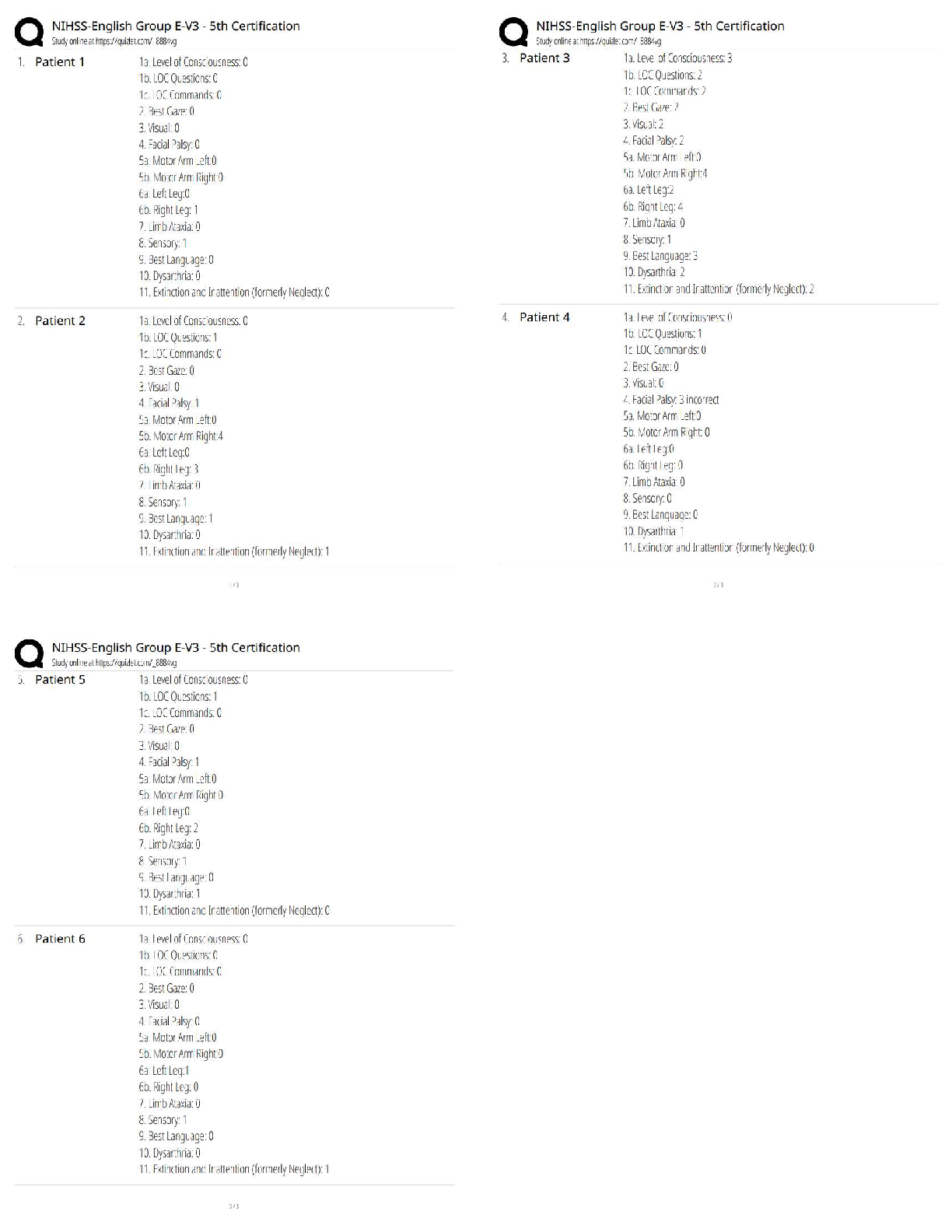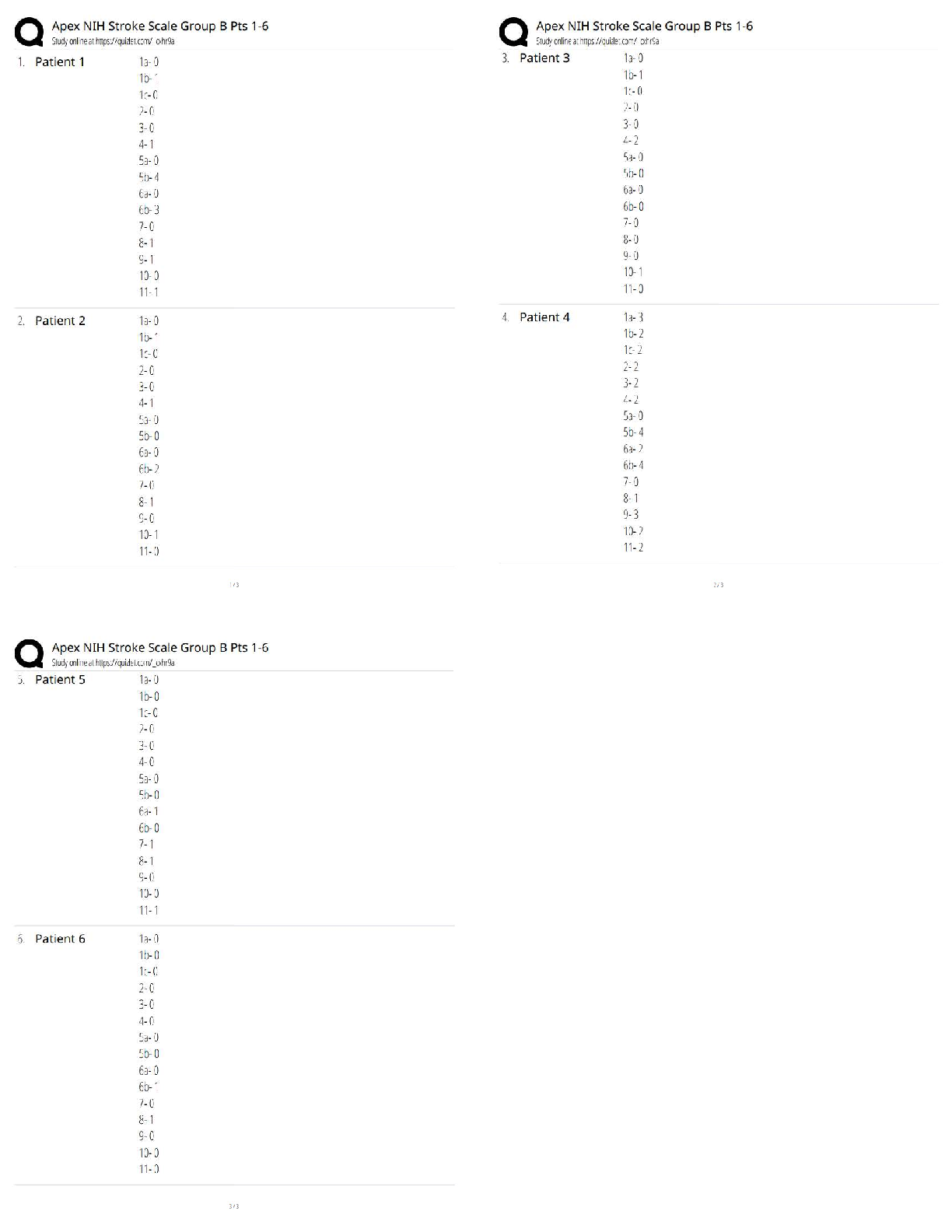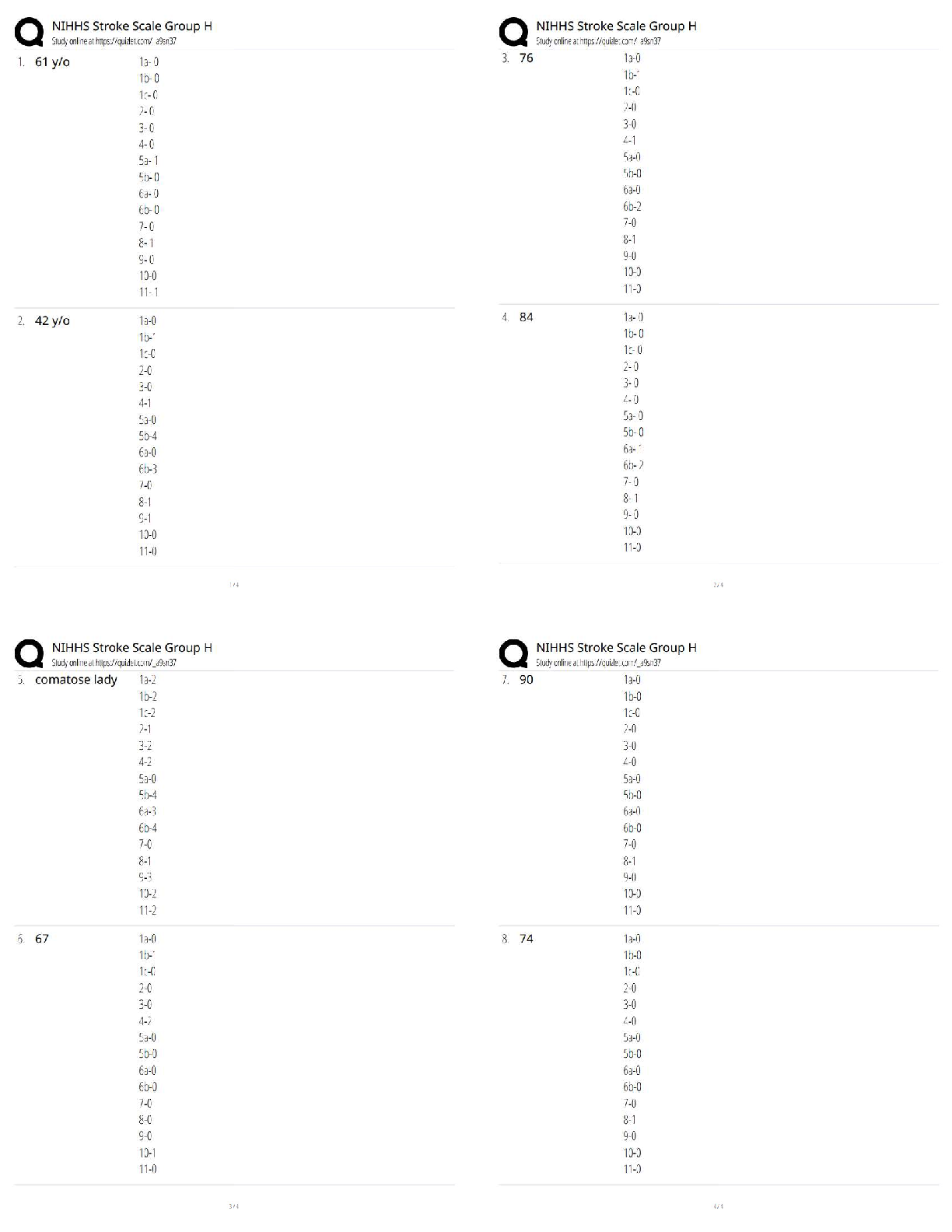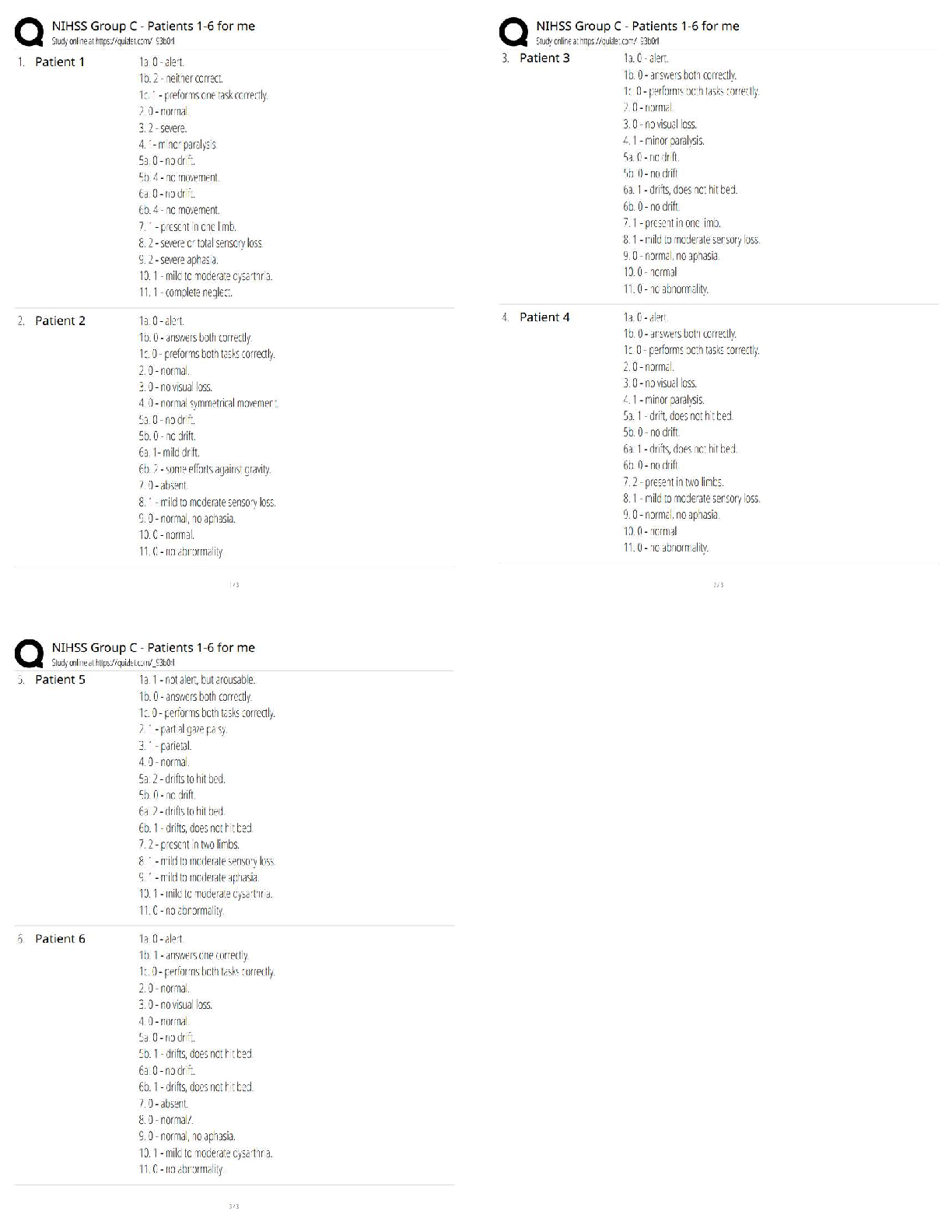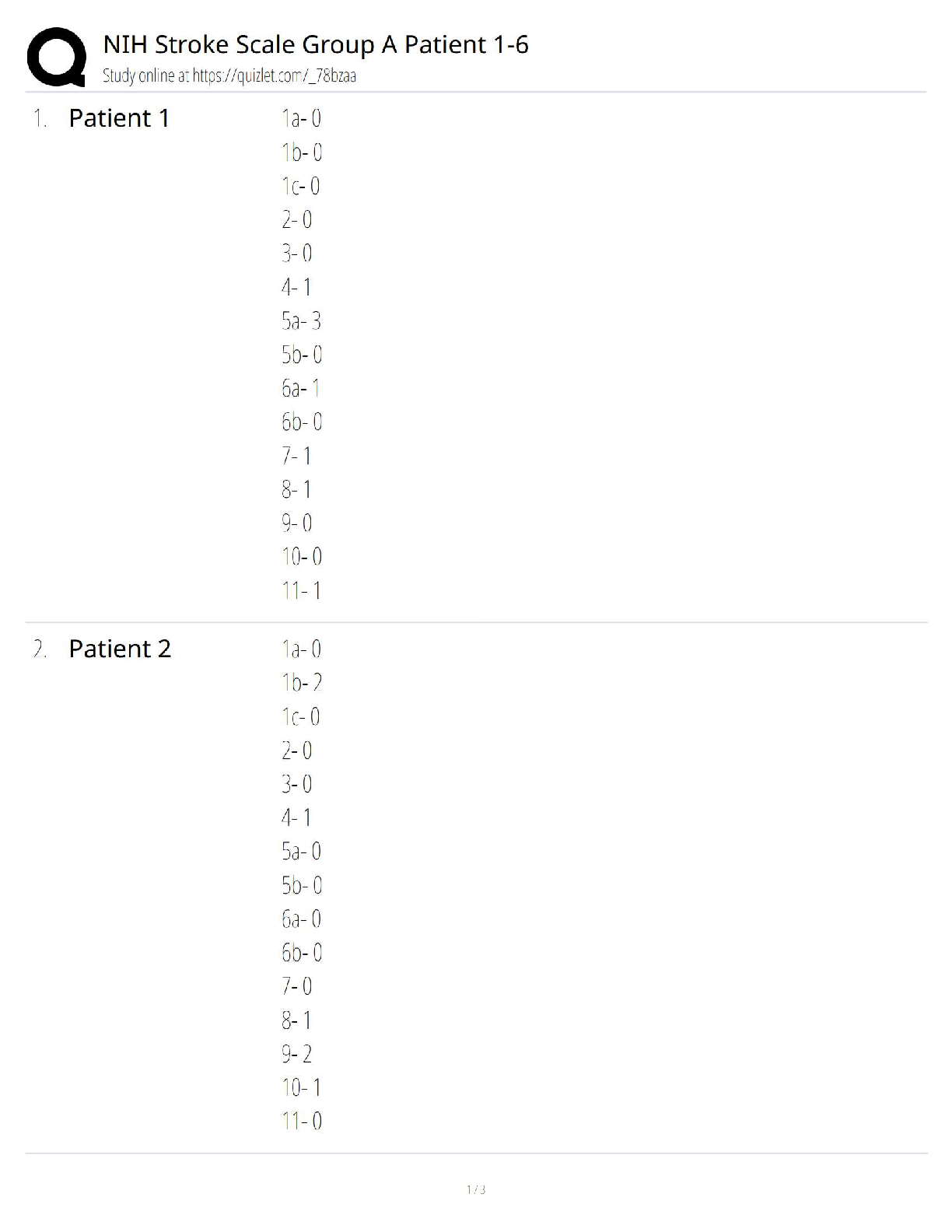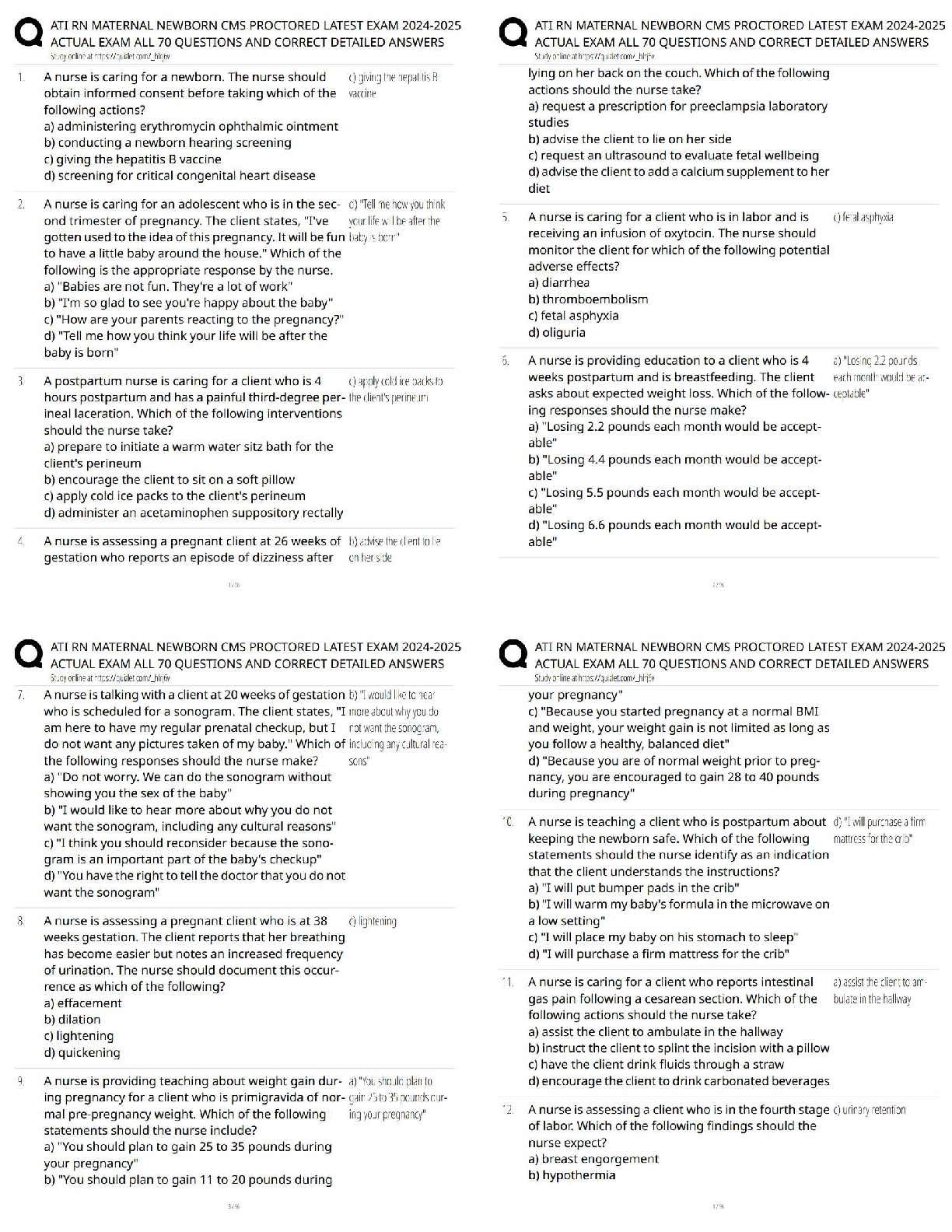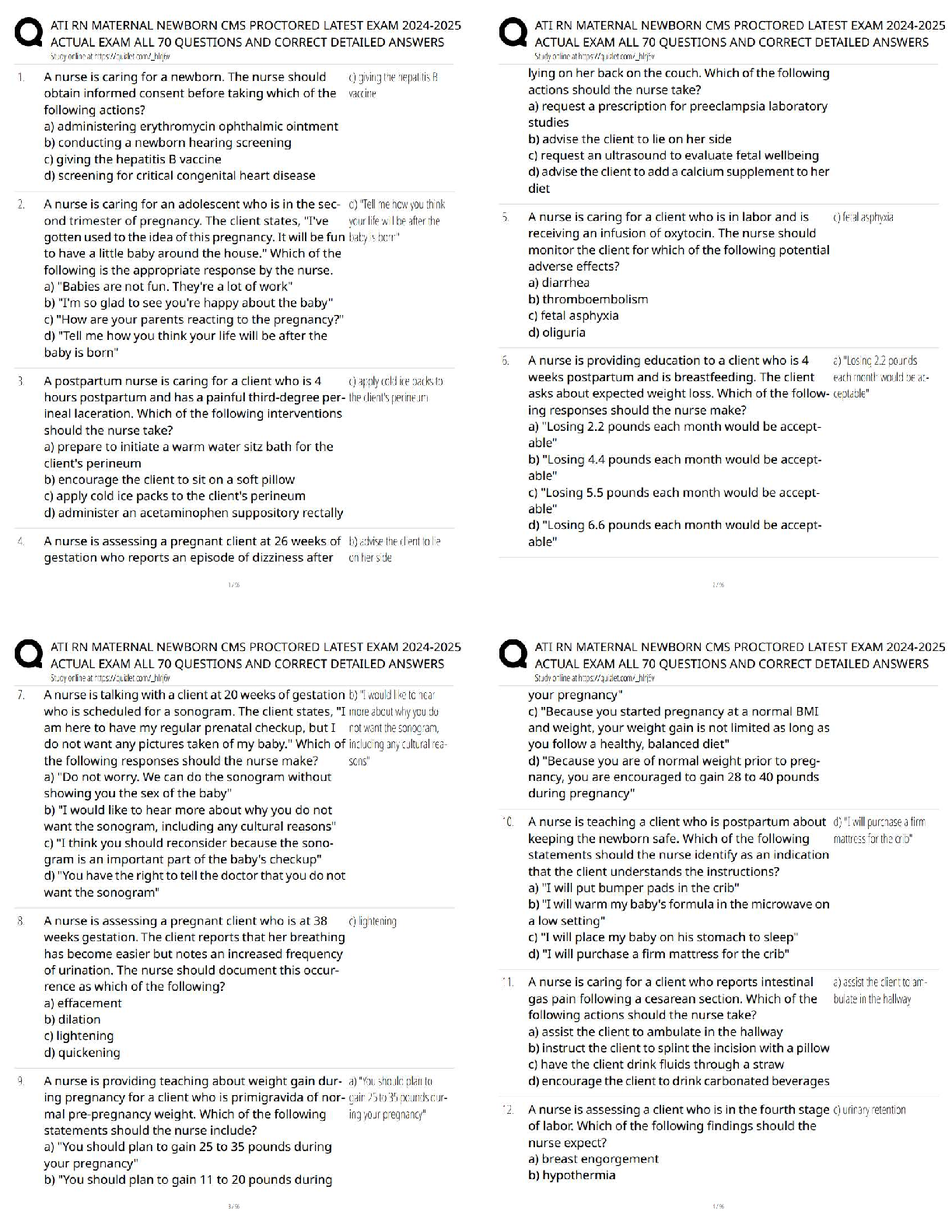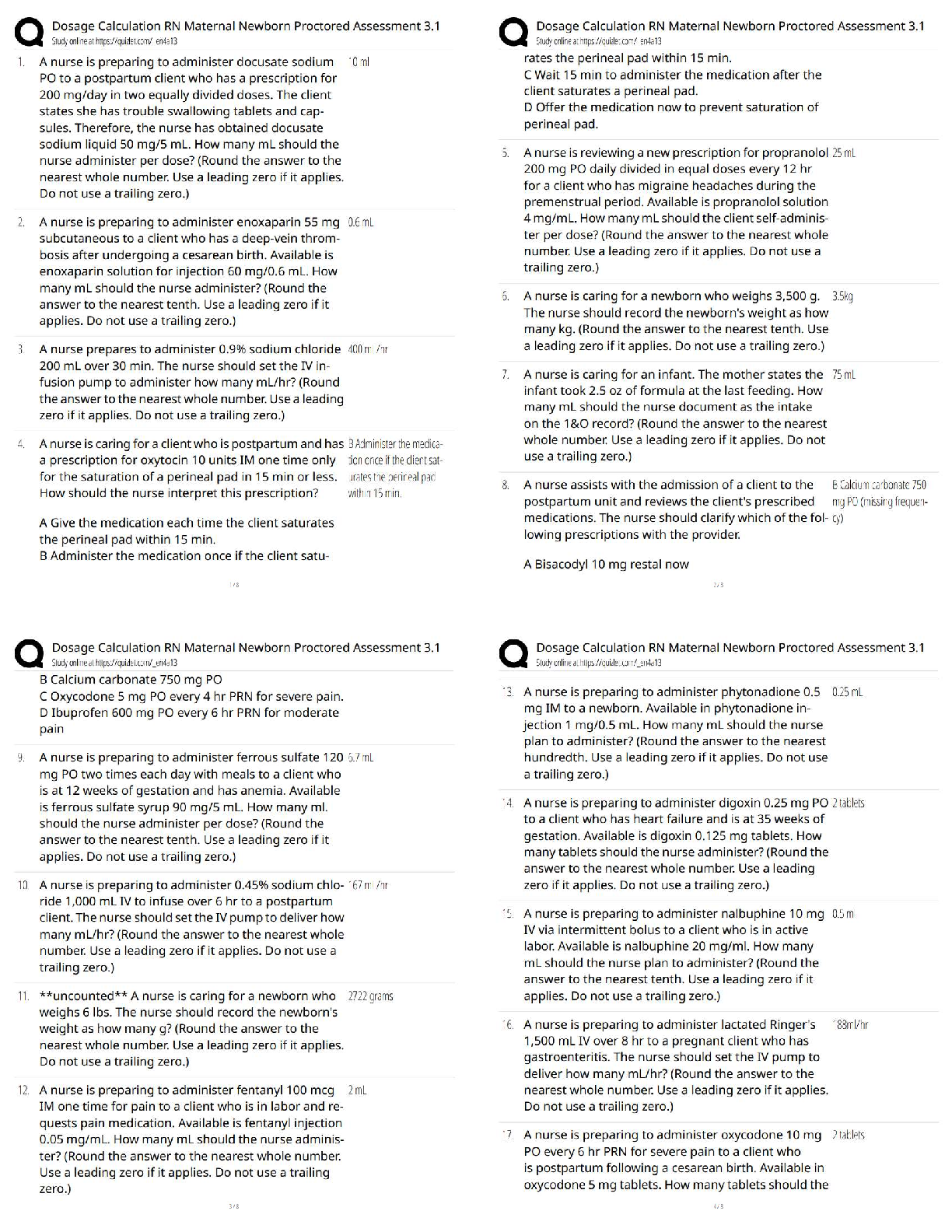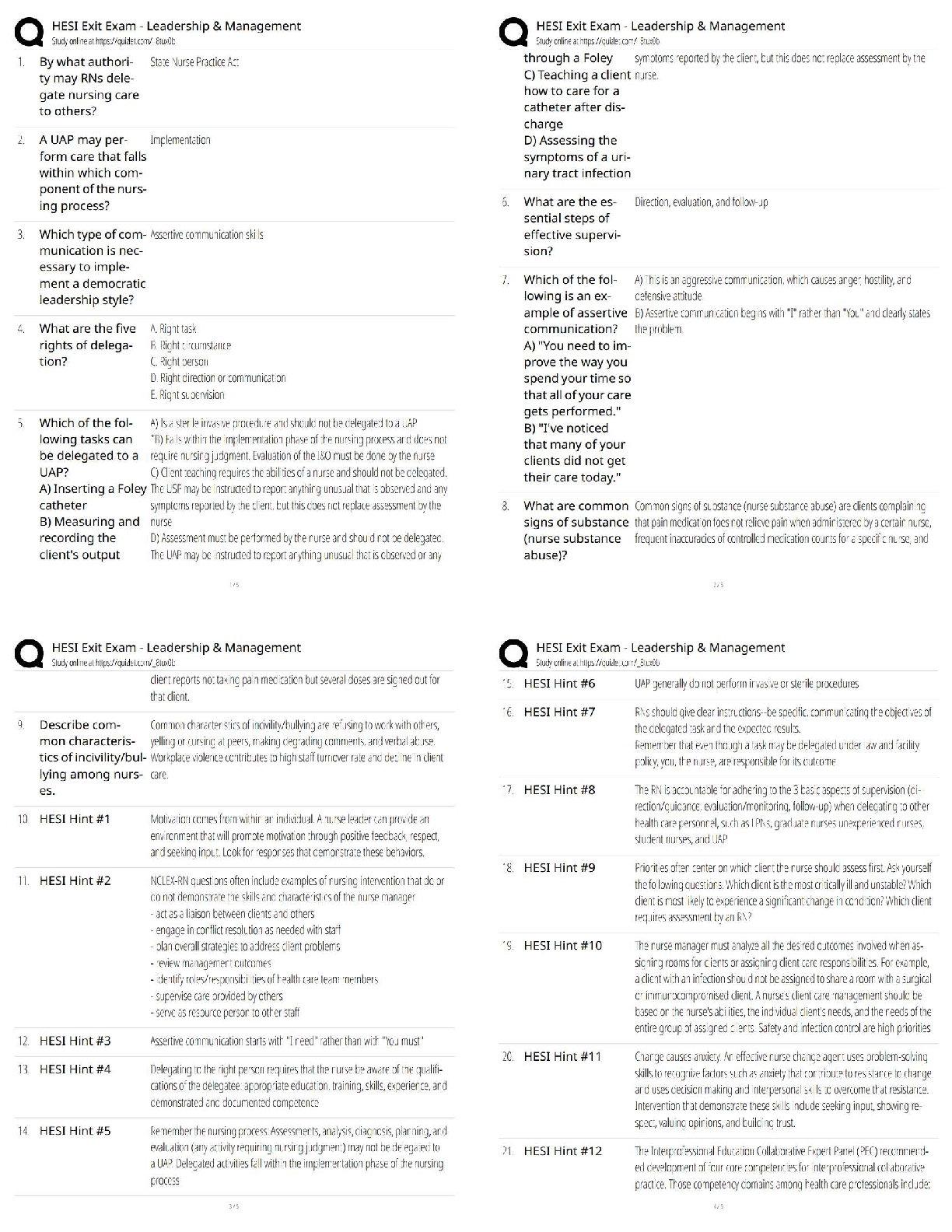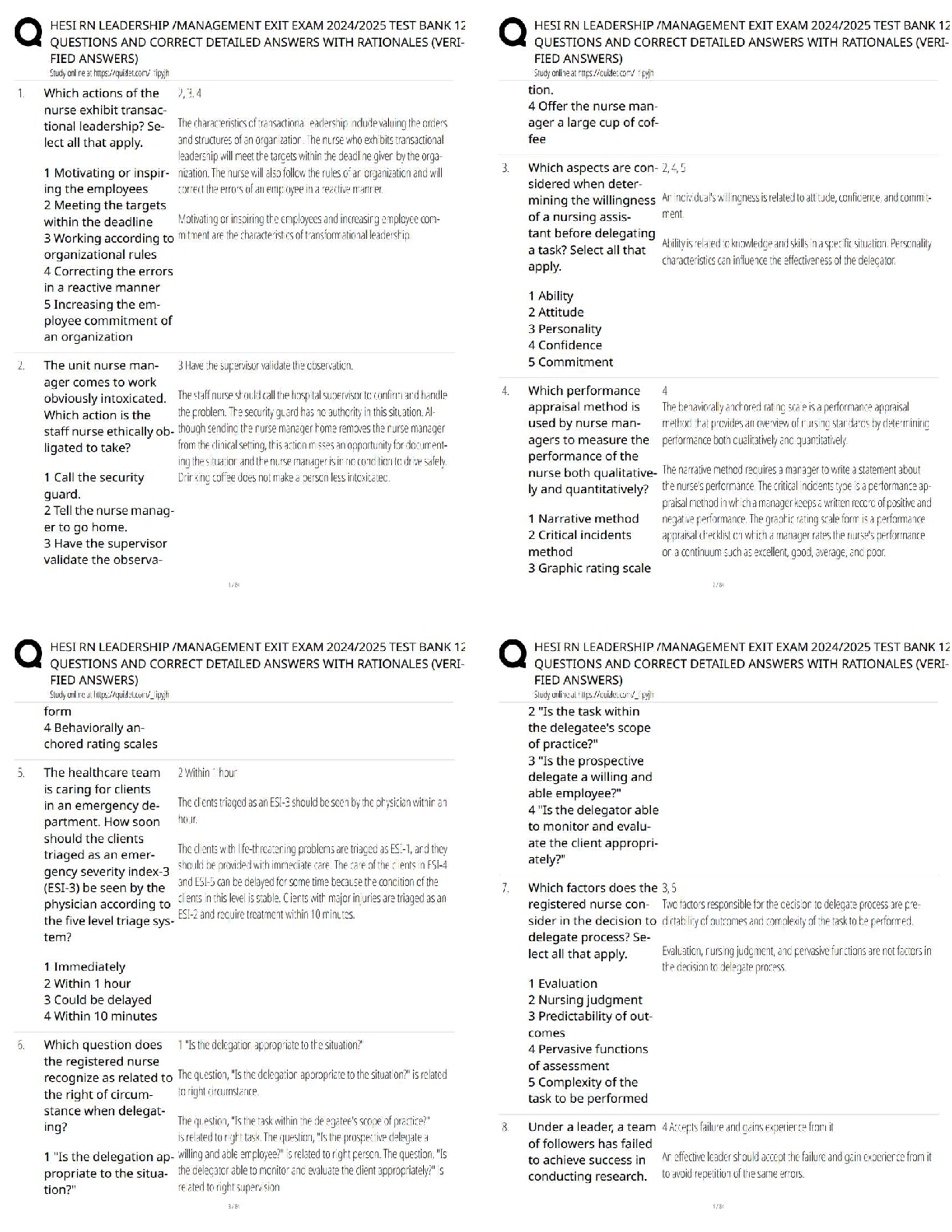
SCI 228 Week 2 Lab Assignment: Stevia (2 Versions)
$ 10
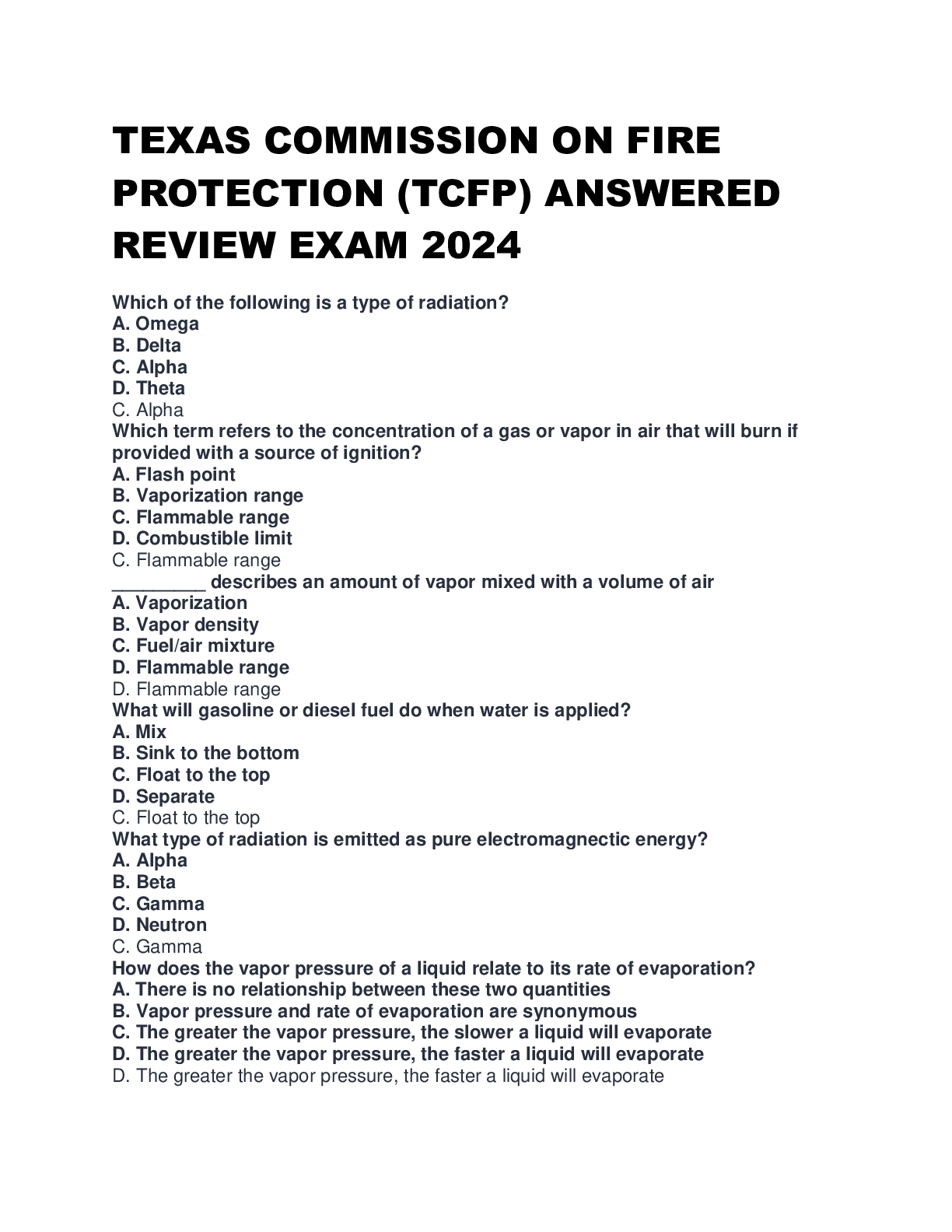
(TCFP) TEXAS COMMISSION ON FIRE PROTECTION ANSWERED REVIEW EXAM 2024
$ 19

HESI RN EXIT EXAM WITH NGN 130 QUESTIONS AND ANSWERS WITH 100% PASS RATE 2024|2025 !!!
$ 20.5
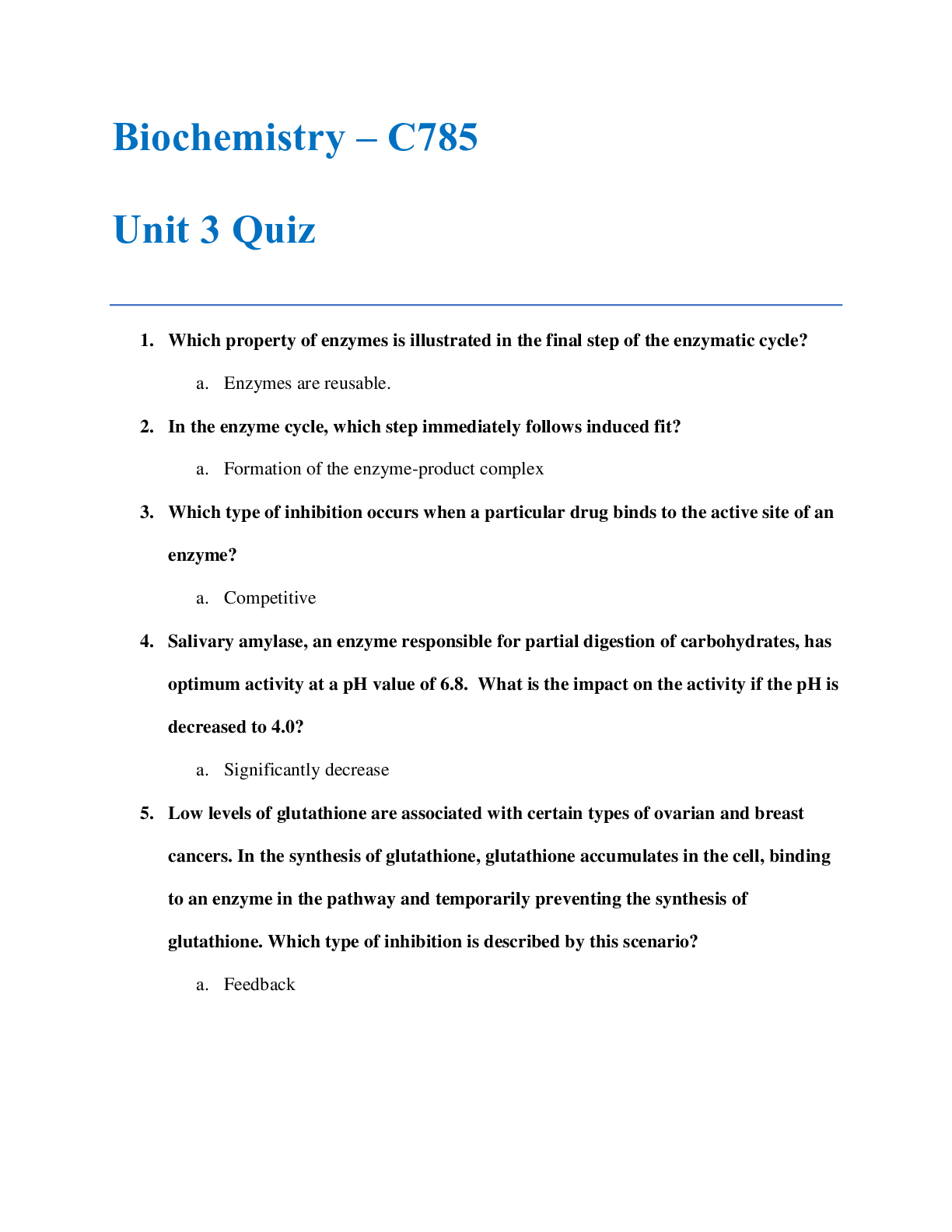
Questions and Answers > BIOCHEM C785Biochemistry Unit 3 Quiz.
$ 9
.png)
AQA A-LEVEL SOCIOLOGY 7192/1 Paper 1 Education with Theory and Methods Mark scheme June 2021 Version: 1.0 Final Mark Scheme
$ 10

Strategy and Positioning Analysis Part 1-2.doc Strategy and Positioning Analysis Part
$ 5

UNIT & INDIVIDUAL PR RESPONSIBILITIES QUESTIONS WITH CORRECT ANSWERS
$ 3

NURS 6501 FINAL EXAM ADVANCED PATHOPHYSIOLOGY WEEK 3 CHAPTER 13 STRUCTURE AND FUNCTION OF THE NEUROLOGIC SYSTEM 2021 Answers are clearly highlighted in red color (GRADED A+)
$ 4
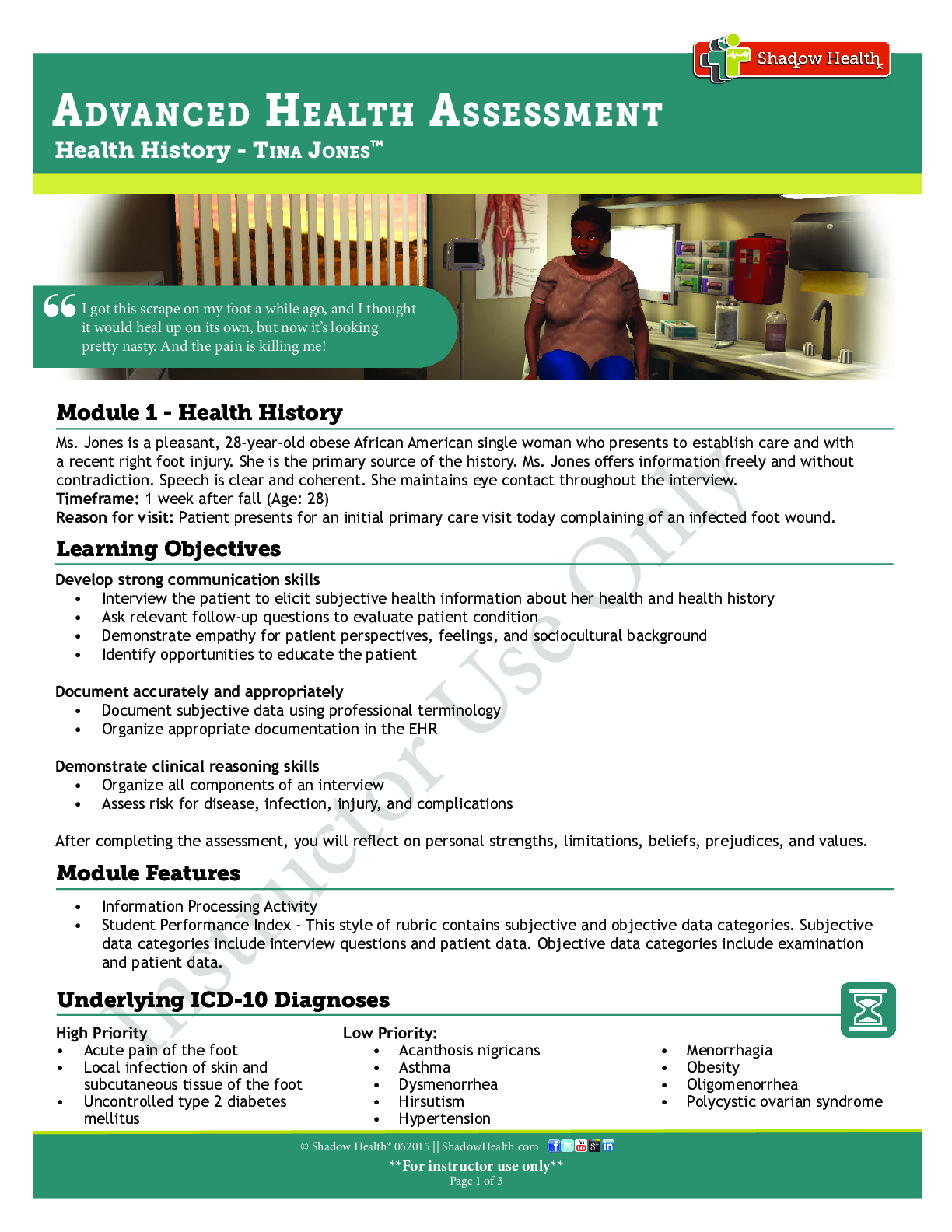
Study guide - NR 509 Shadow Health All Modules Cases Instructor Keys.
$ 15

NR 511 Midterm Exam - Question and Answers
$ 14
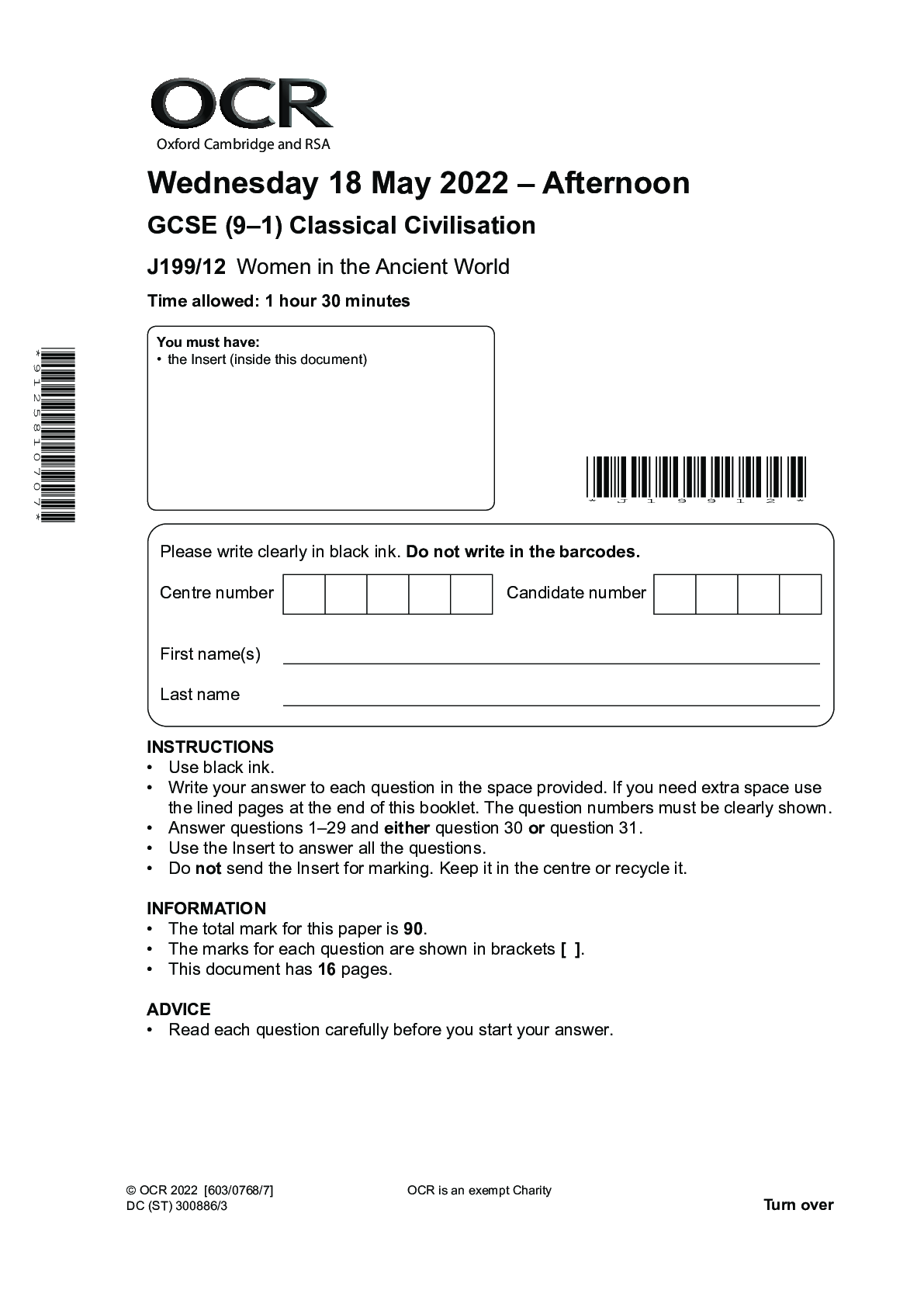
OCR Oxford Cambridge and RSA Wednesday 18 May 2022 — Afternoon GCSE (9—1) Classical Civilisation J199/12 Women in the Ancient World Time allowed: 1 hour 30 minutes
$ 6

eBook [PDF] Machine Learning: A Bayesian and Optimization Perspective 1st Edition by Sergios Theodoridis
$ 20
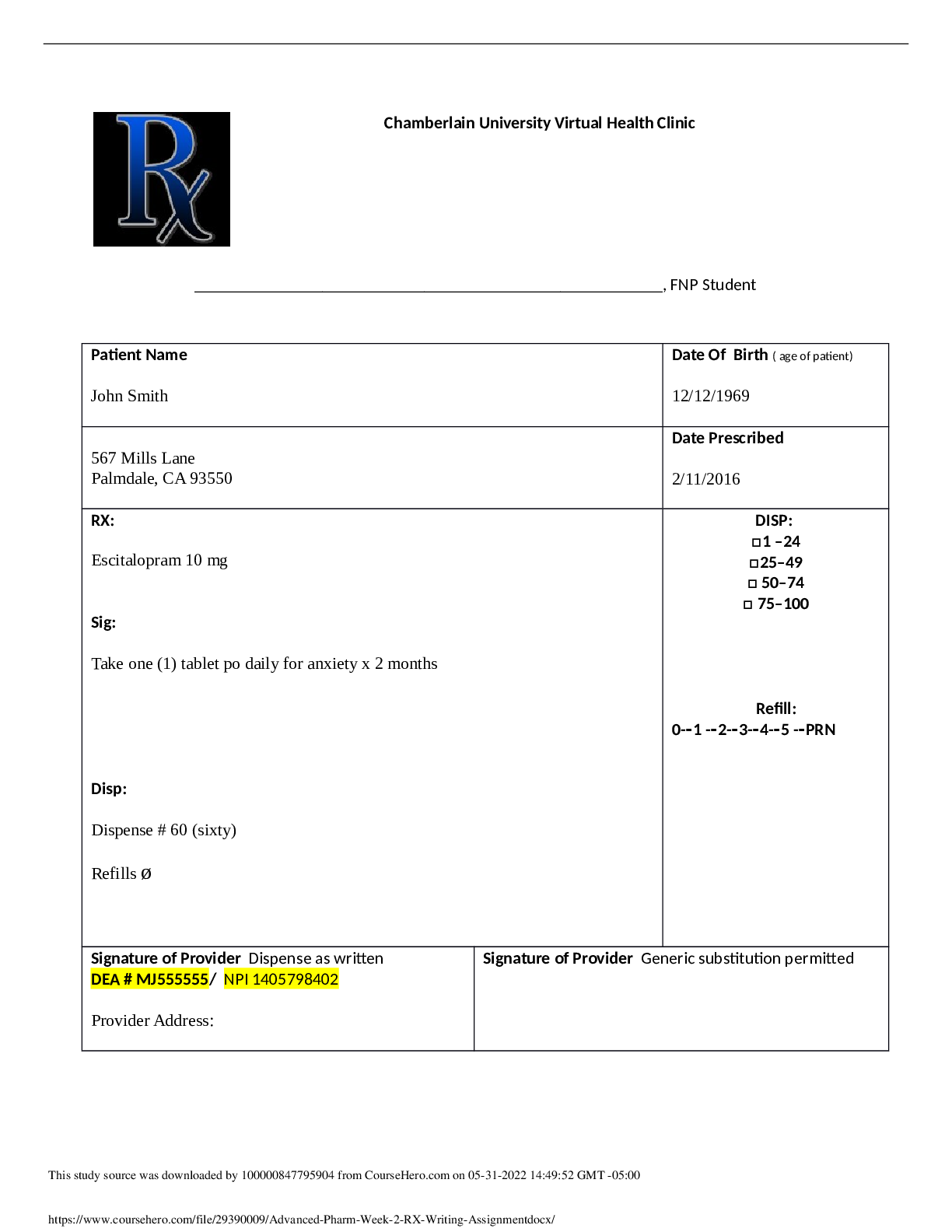
NR 565 Week 2 Assignment: RX Writing Assignment (GRADED A+)
$ 5.5

ATI Comprehensive Predictor "STUDY THIS ONE" 177 Questions with 100% Correct Answers 2022
$ 12

BCOT Week 4 Questions & Answers | 80 Questions with 100% Correct Answers | Verified | Updated 2023
$ 8
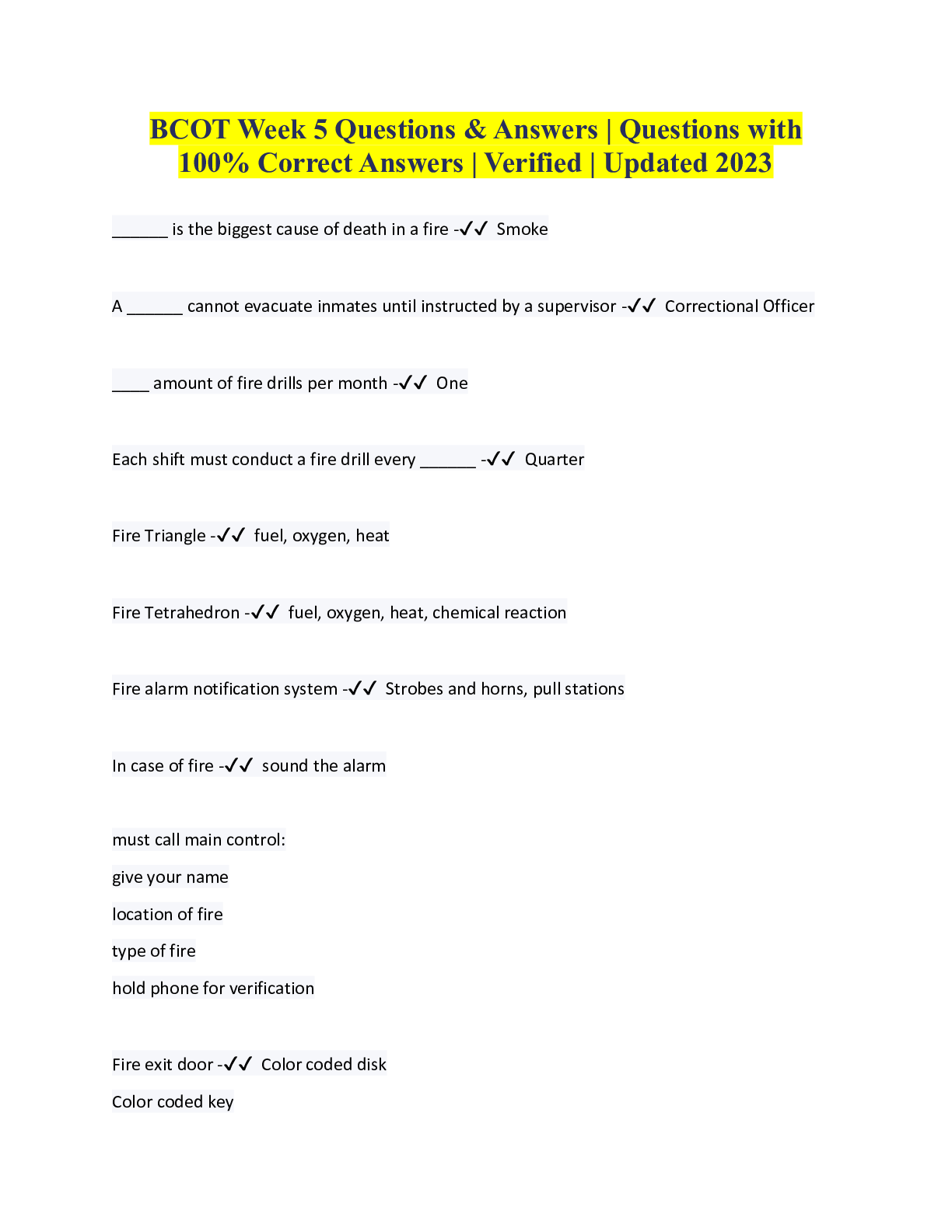
BCOT Week 5 Questions & Answers | Questions with 100% Correct Answers | Verified | Updated 2023
$ 8
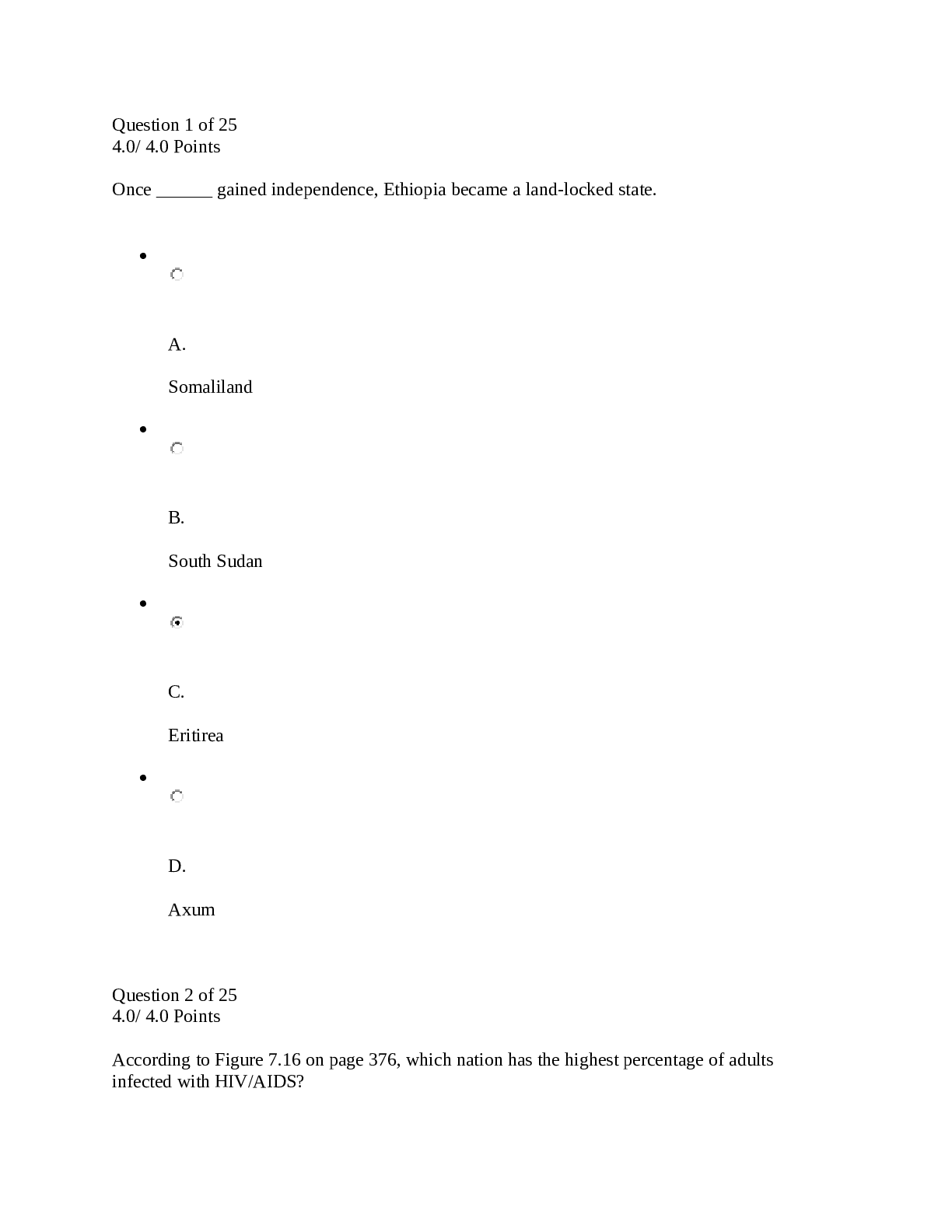
GEOG 101 Week 4 Quiz. Questions And Answers. American Public University.
$ 15

LETRS Unit 6 Assessment, All Sessions 1-6, Comprehension & Midterm; Complete Solution Guide_2022.
$ 11
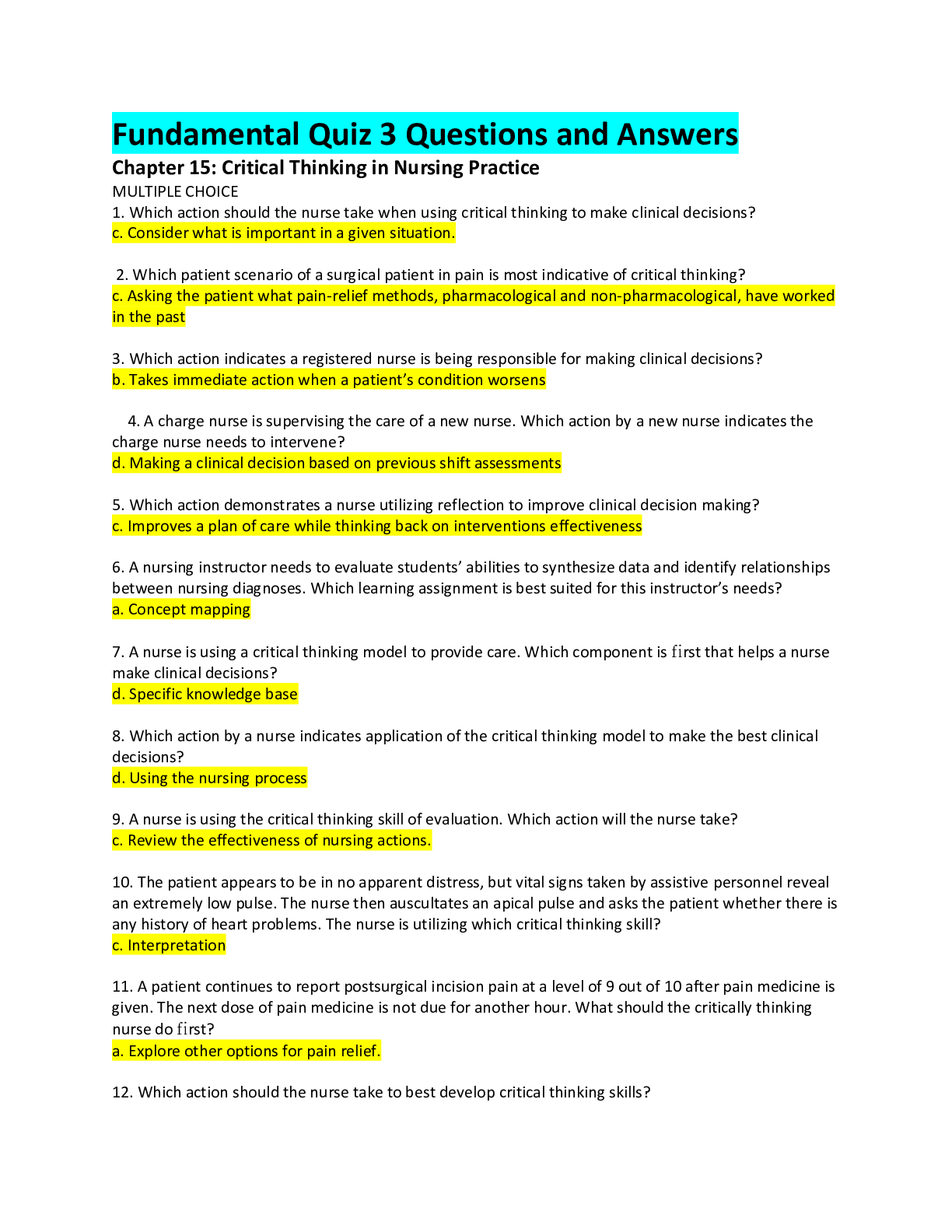
Fundamental Quiz 3 Questions and Answers-2021
$ 13.5

PGA PGM Teaching and Coaching 1 3.0 exam 2022/2023 with 100% correct answers
$ 16

BUS 475 Assignment Week 5 Apply Strategic Plan Evaluation (Hoosier Media Inc.) Complete Solution; Already Graded A.
$ 9
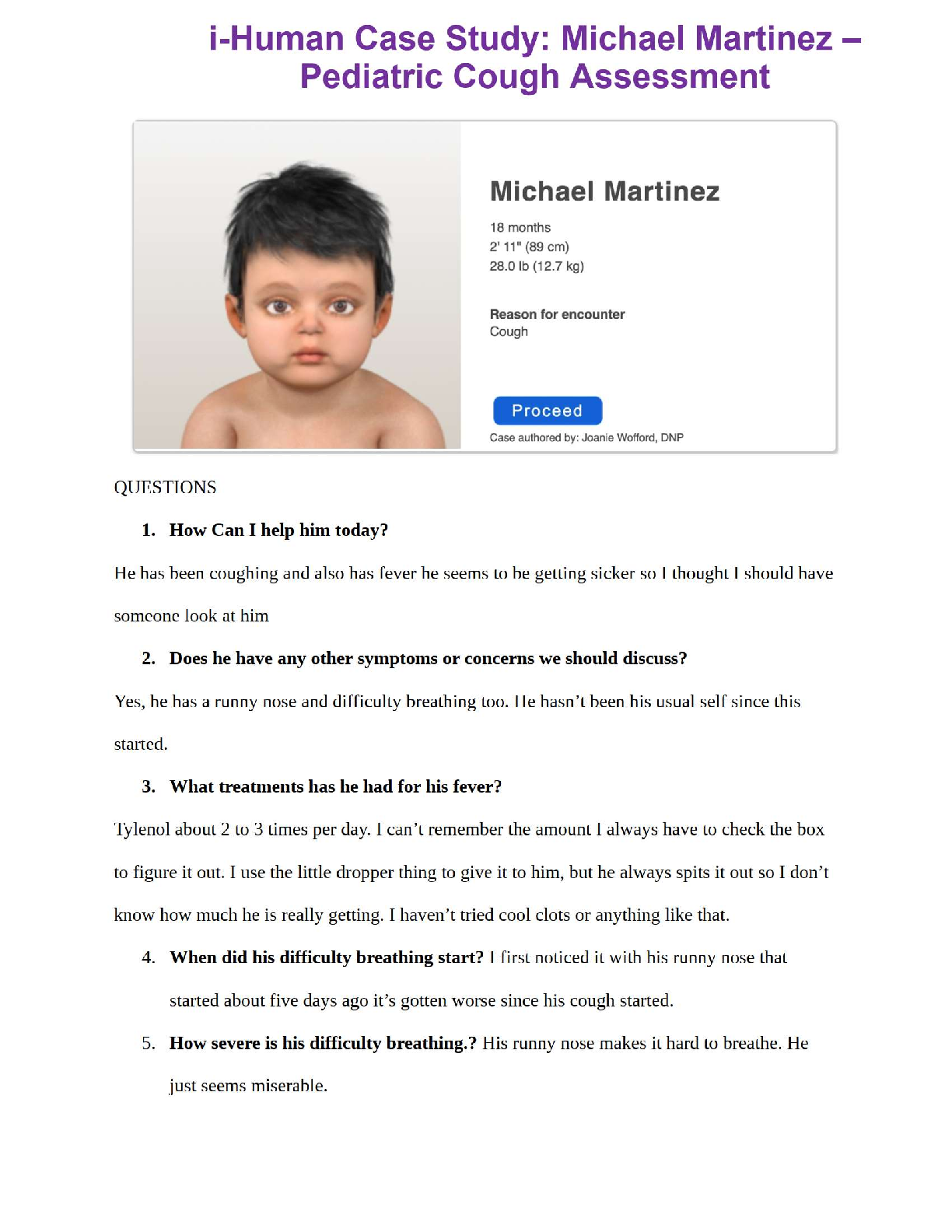
i-Human Case Study: Michael Martinez – Pediatric Cough Assessment
$ 10
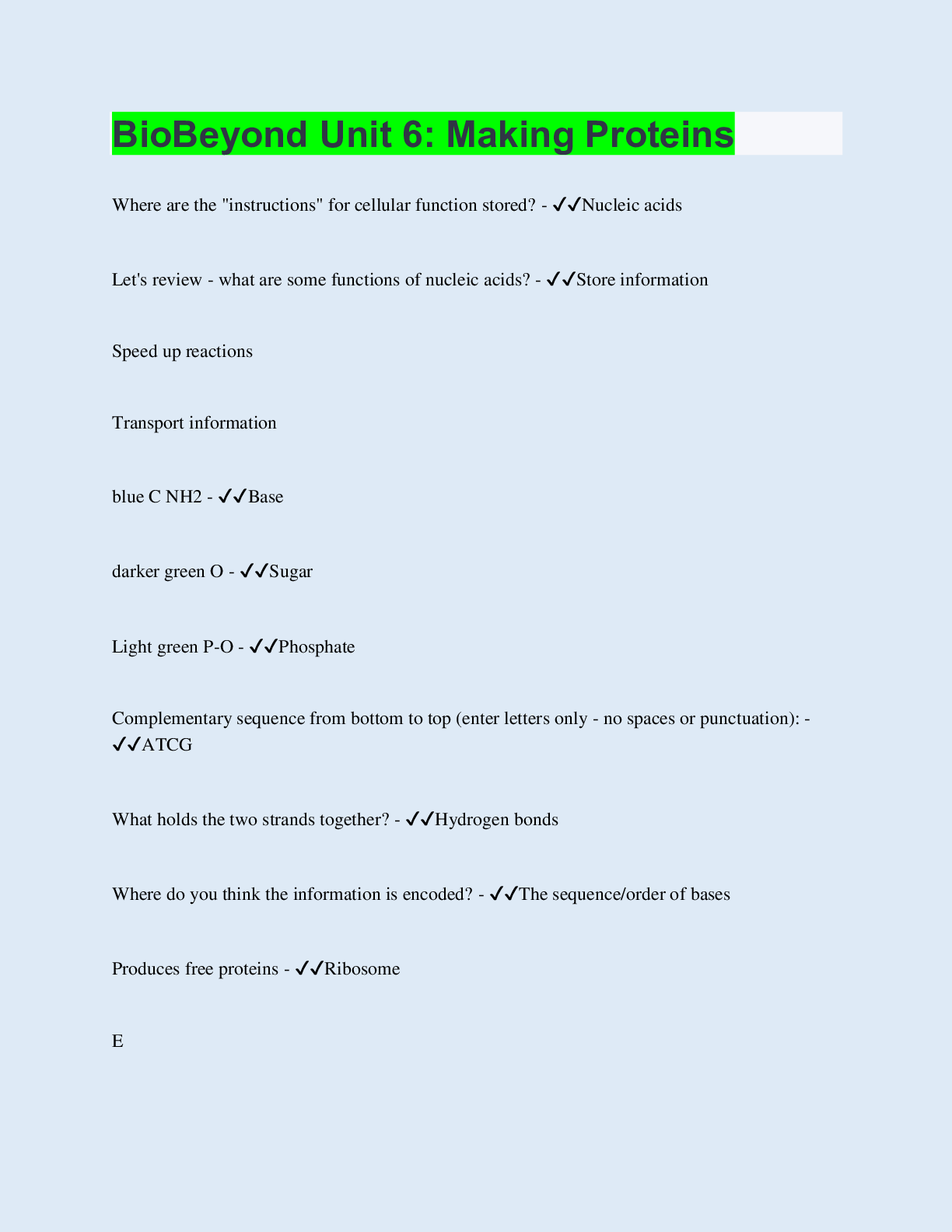
BioBeyond Unit 6: Making Proteins | with 100% Correct Answers | Updated & Verified
$ 7

Quantum Mechanics I The Fundamentals, 2e by S. Rajasekar, R. Velusamy (Solutions Manual)
$ 25

eBook How Cities Become Brands 2024th Edition By Eric Häusler, Jürgen Häusler
$ 29
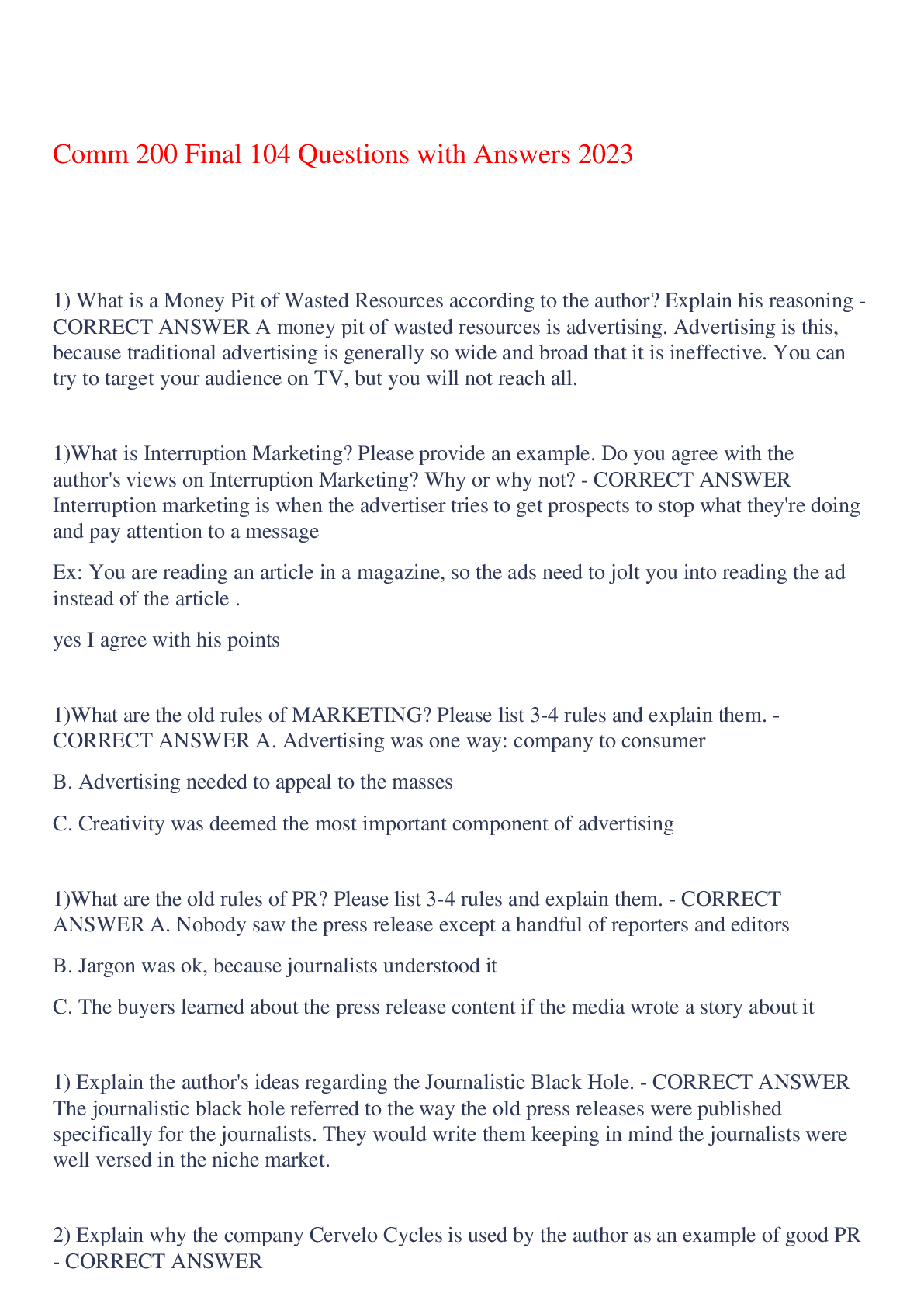
Comm 200 Final 104 Questions with Answers 2023,100% CORRECT
$ 10.5
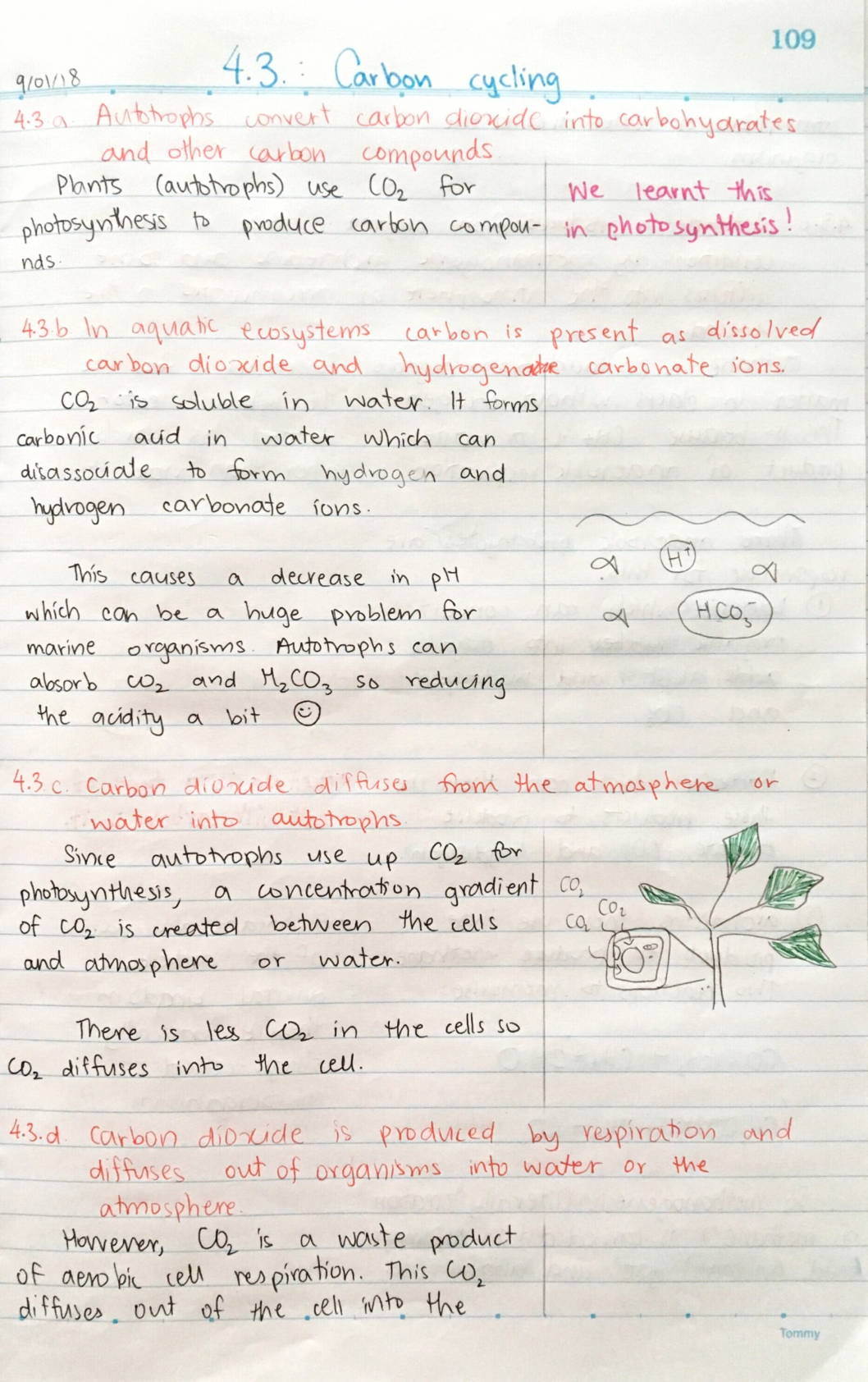
Carbon cycling
$ 4.5

Introduction to Probability and Statistics, 3rd Canadian Edition 3rd Edition By William Mendenhall, Robert Beaver, Ejaz Ahmed (Solution Manual)
$ 25

Test Bank Horngren's Accounting, The Financial Chapters, 14th Edition by Tracie MillerNobles
$ 12.5
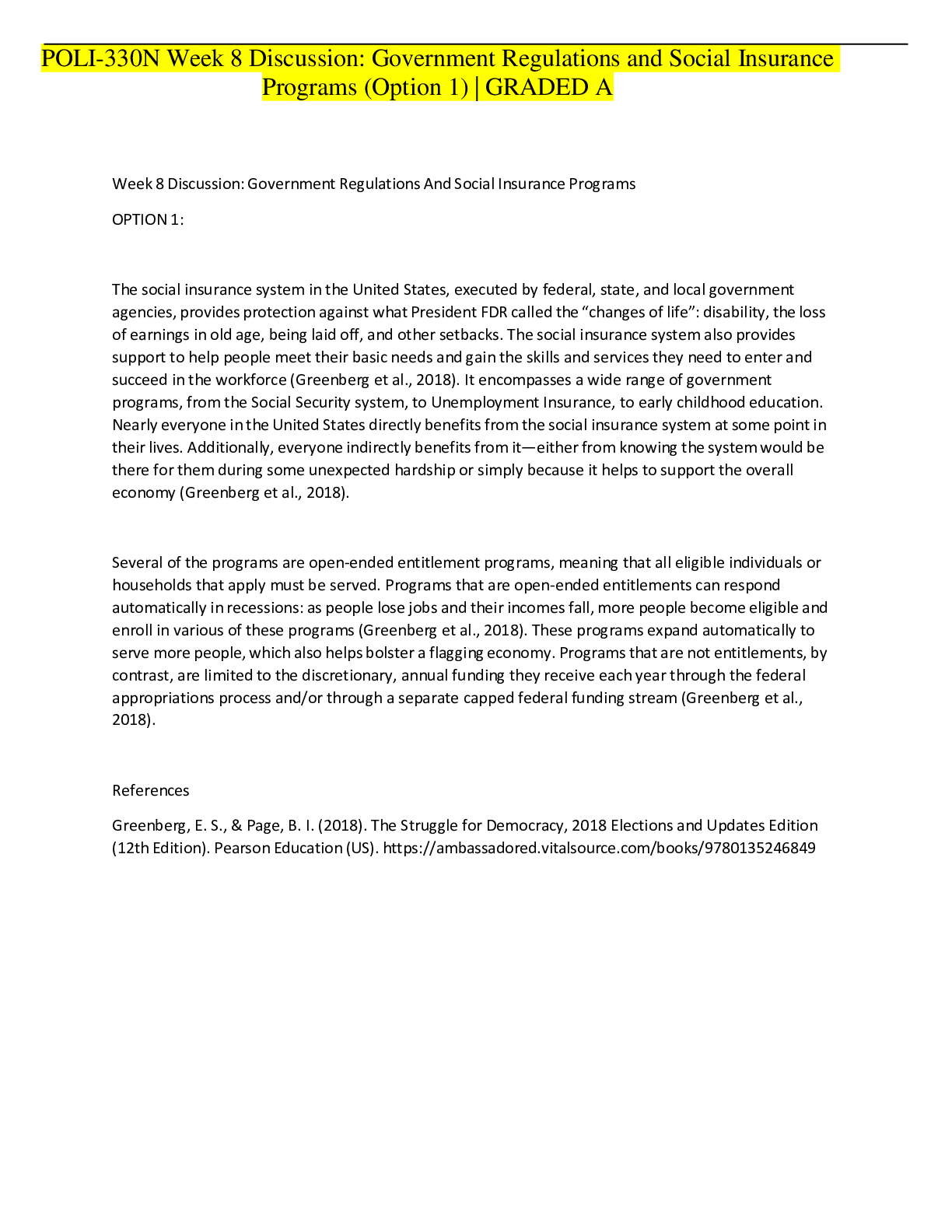
POLI-330N Week 8 Discussion: Government Regulations and Social Insurance Programs (Option 1) | GRADED A
$ 8.5

eBook (EPUB) [PDF] Introduction to Teaching 4th Edition By Gene Erwin Hall, Linda Quinn, Donna Gollnick
$ 30
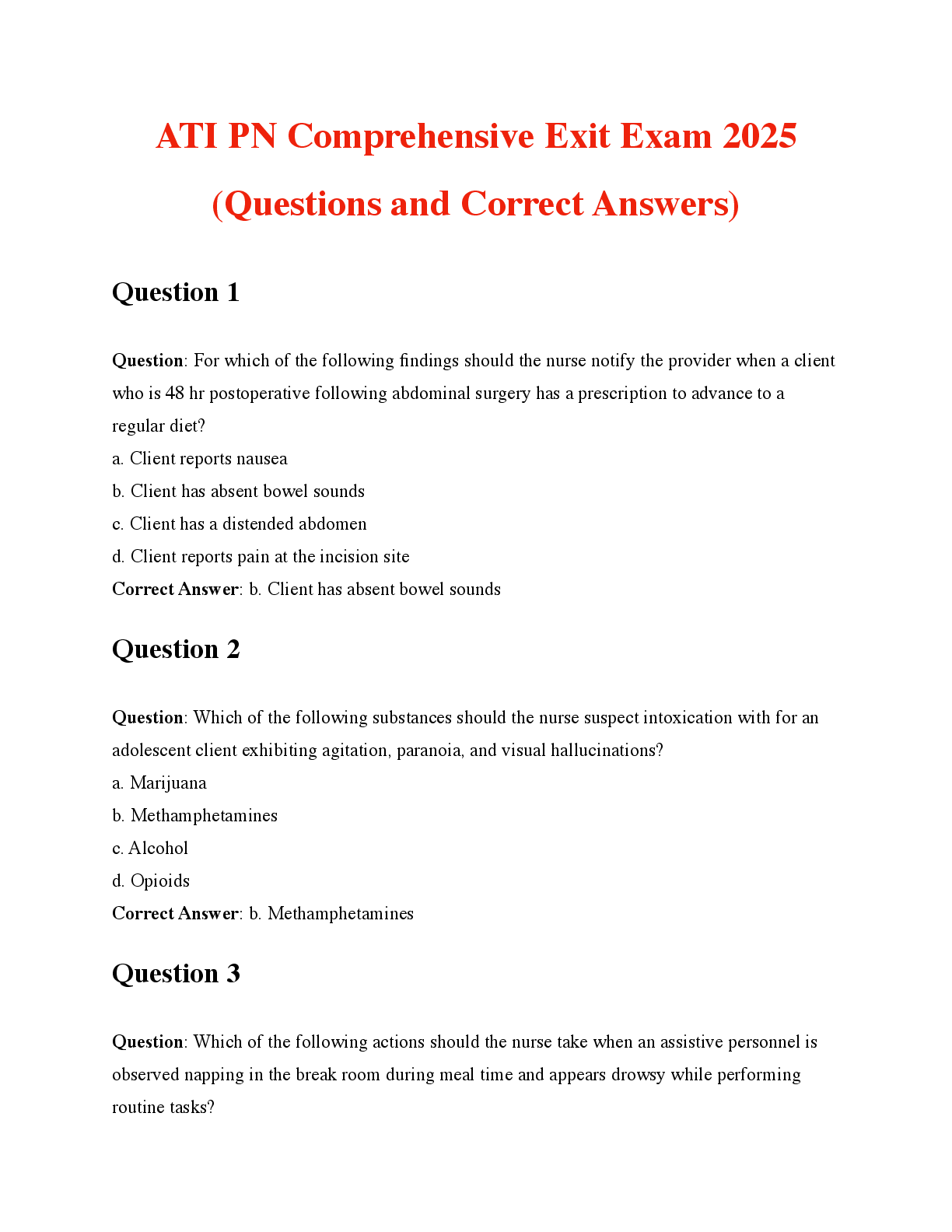
ATI PN Comprehensive Exit Exam 2025 (Questions and Correct Answers)
$ 41
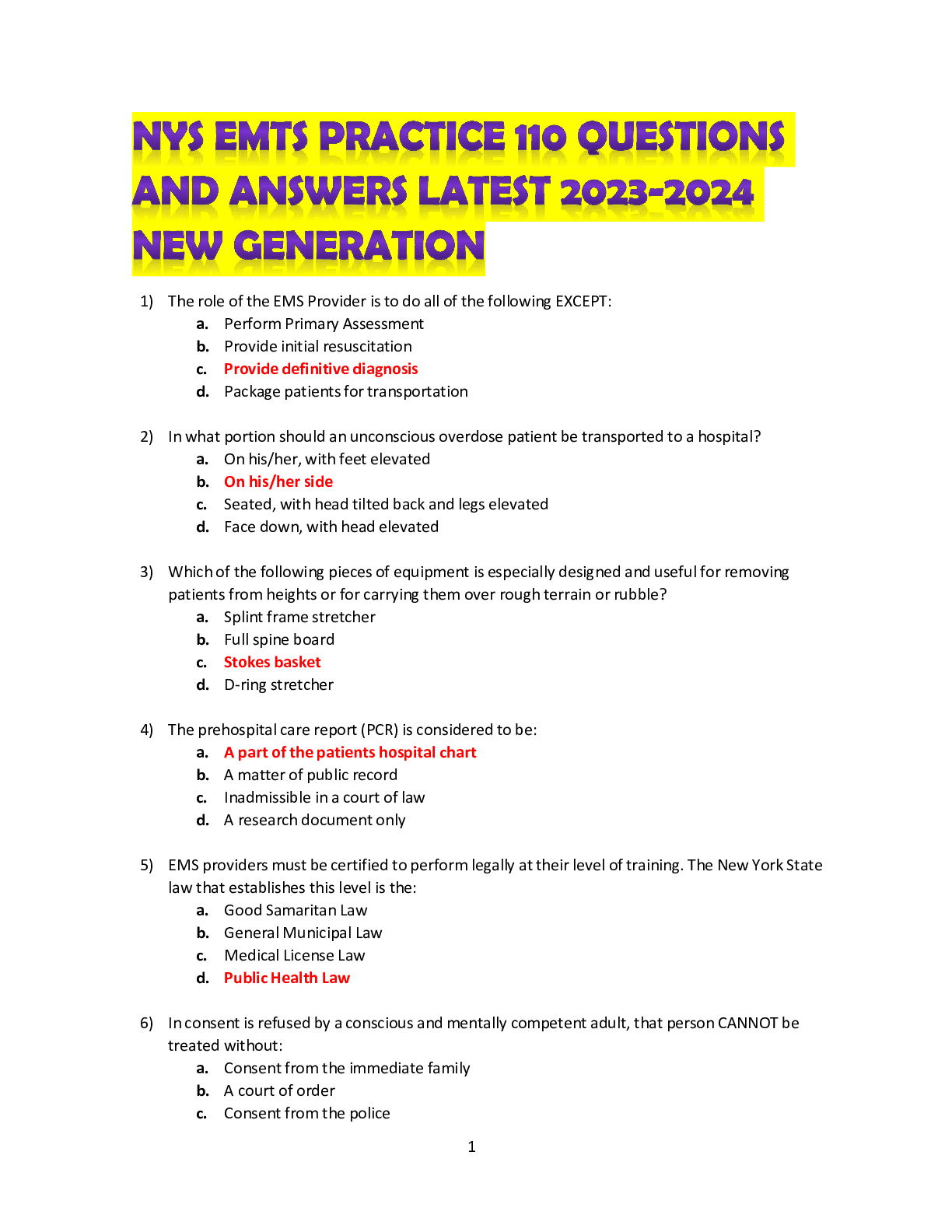
NYS EMTS PRACTICE 110 QUESTIONS AND ANSWERS LATEST 2023-2024 NEW GENERATION
$ 17
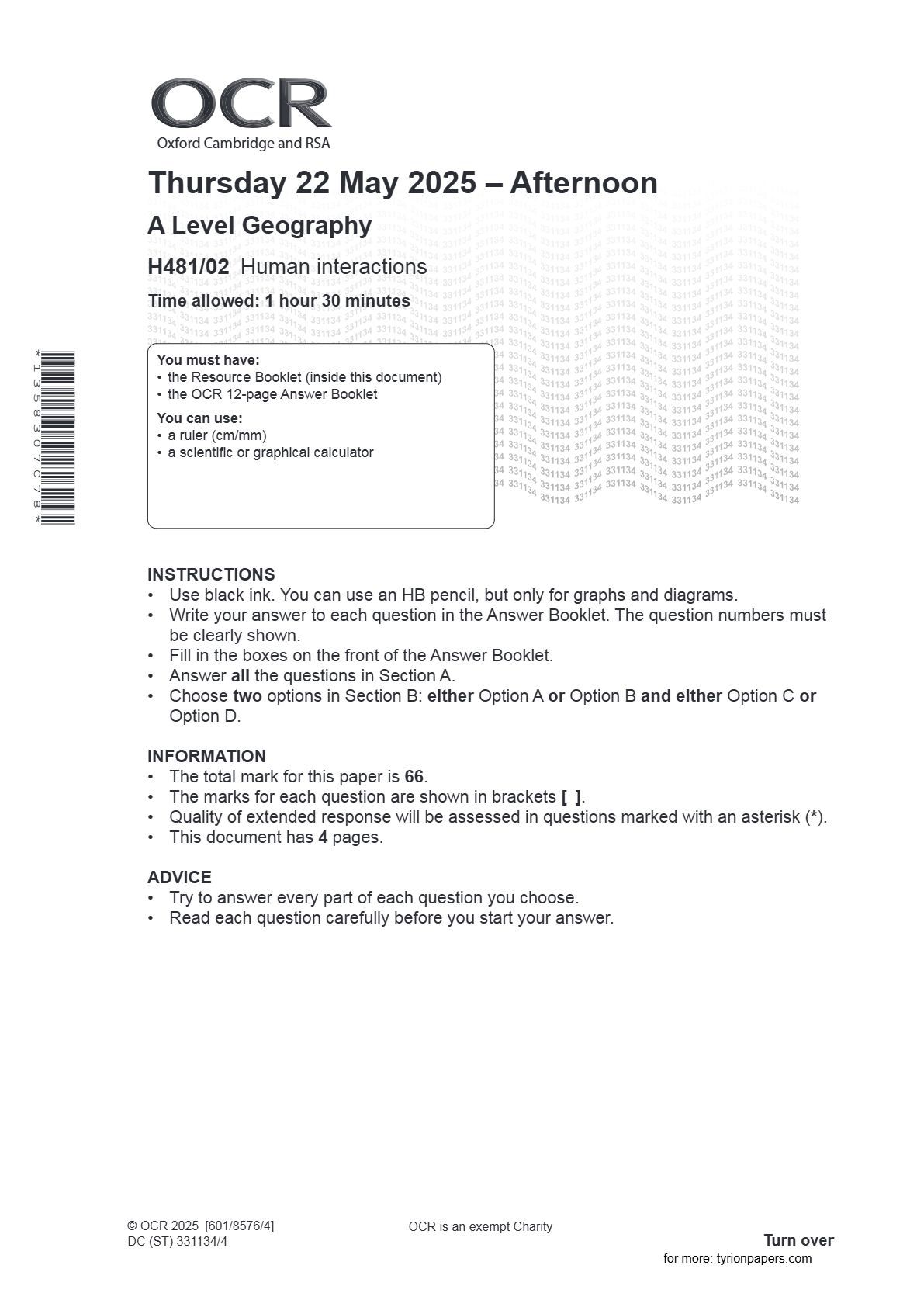
OCR A Level Geography H481/02 Human interactions For June 2025
$ 15
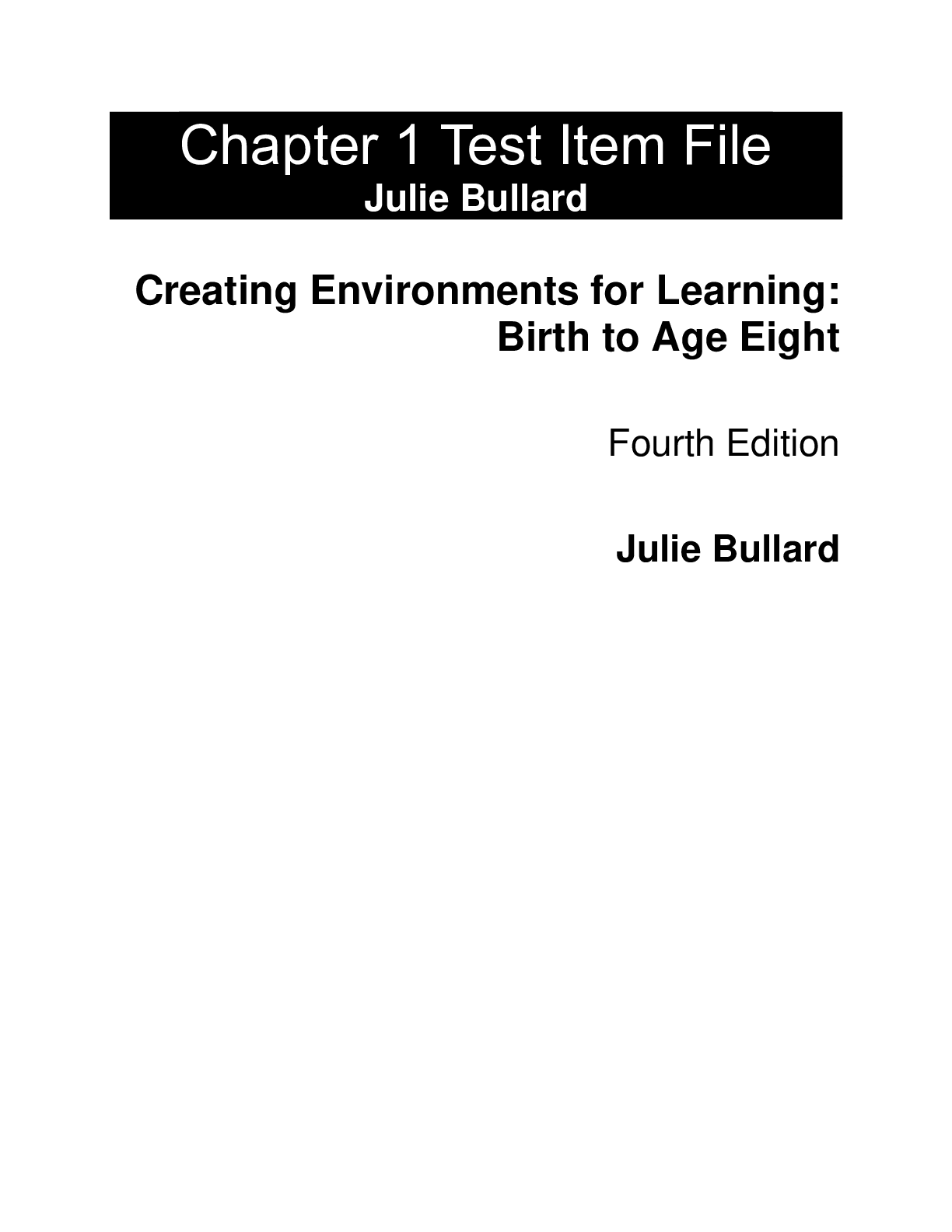
Test Bank For Creating Environments for Learning Birth to Age Eight, 4th Edition by Julie Bullard Chapter 1-17
$ 19
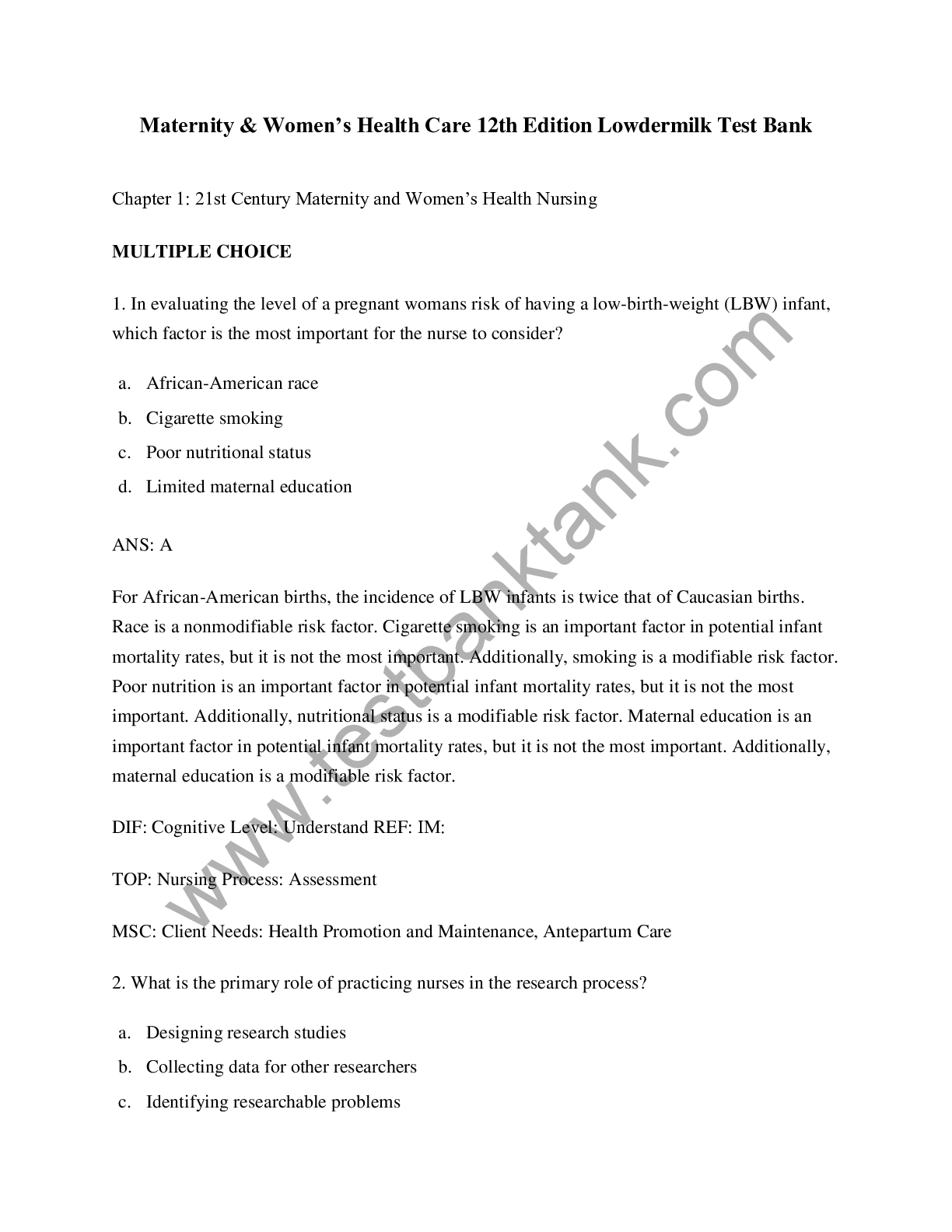
Maternity and Women’s Health Care 12th Edition Lowdermilk | Test Bank
$ 16
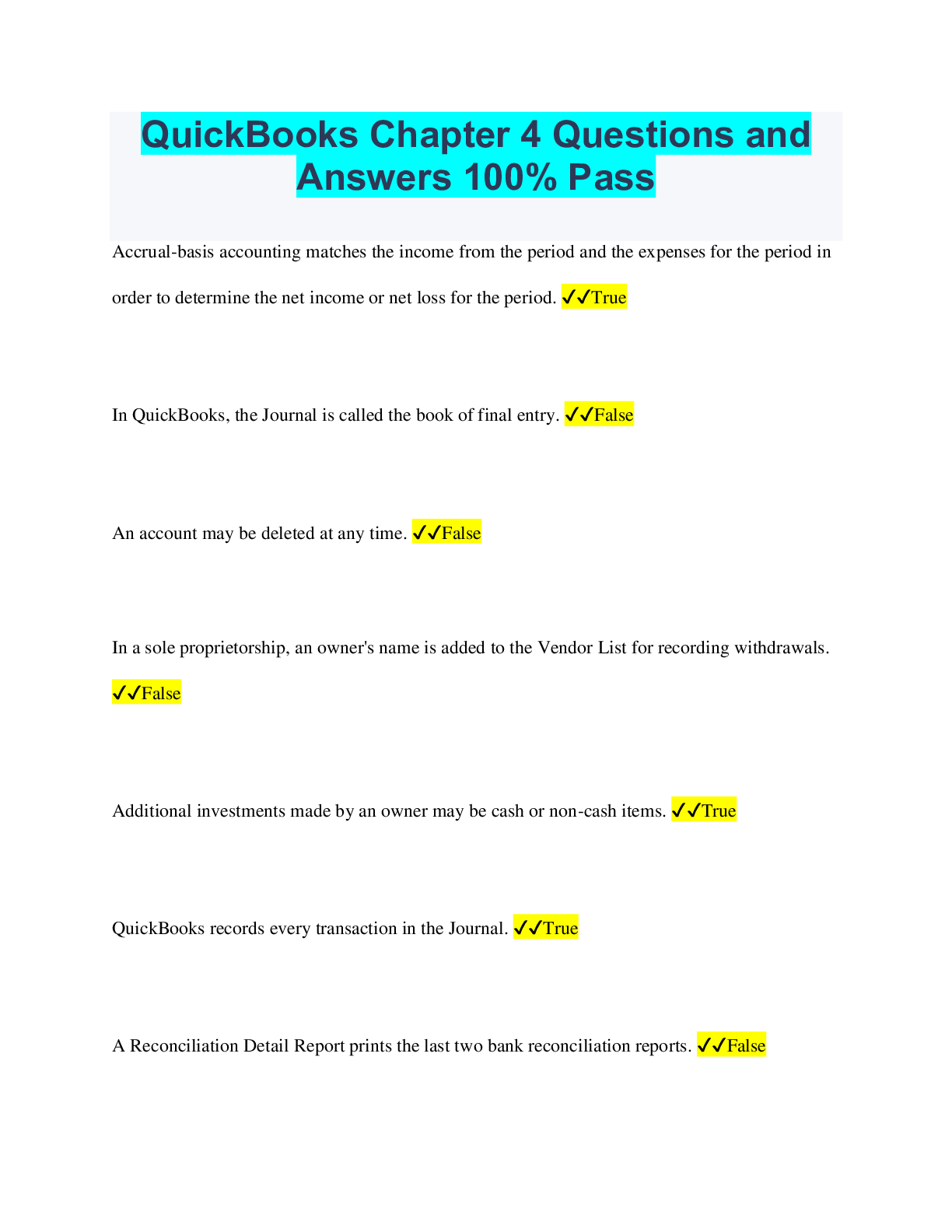
QuickBooks Chapter 4 Questions and Answers 100% Pass
$ 10

WGU C175 Study Notecards Questions And Answers 2022/2023
$ 10
.png)
BSC 2346 Section 06 Human Anatomy and Physiology I Module 11 Final Exam 60 out of 60 points. Complete solution
$ 7.5
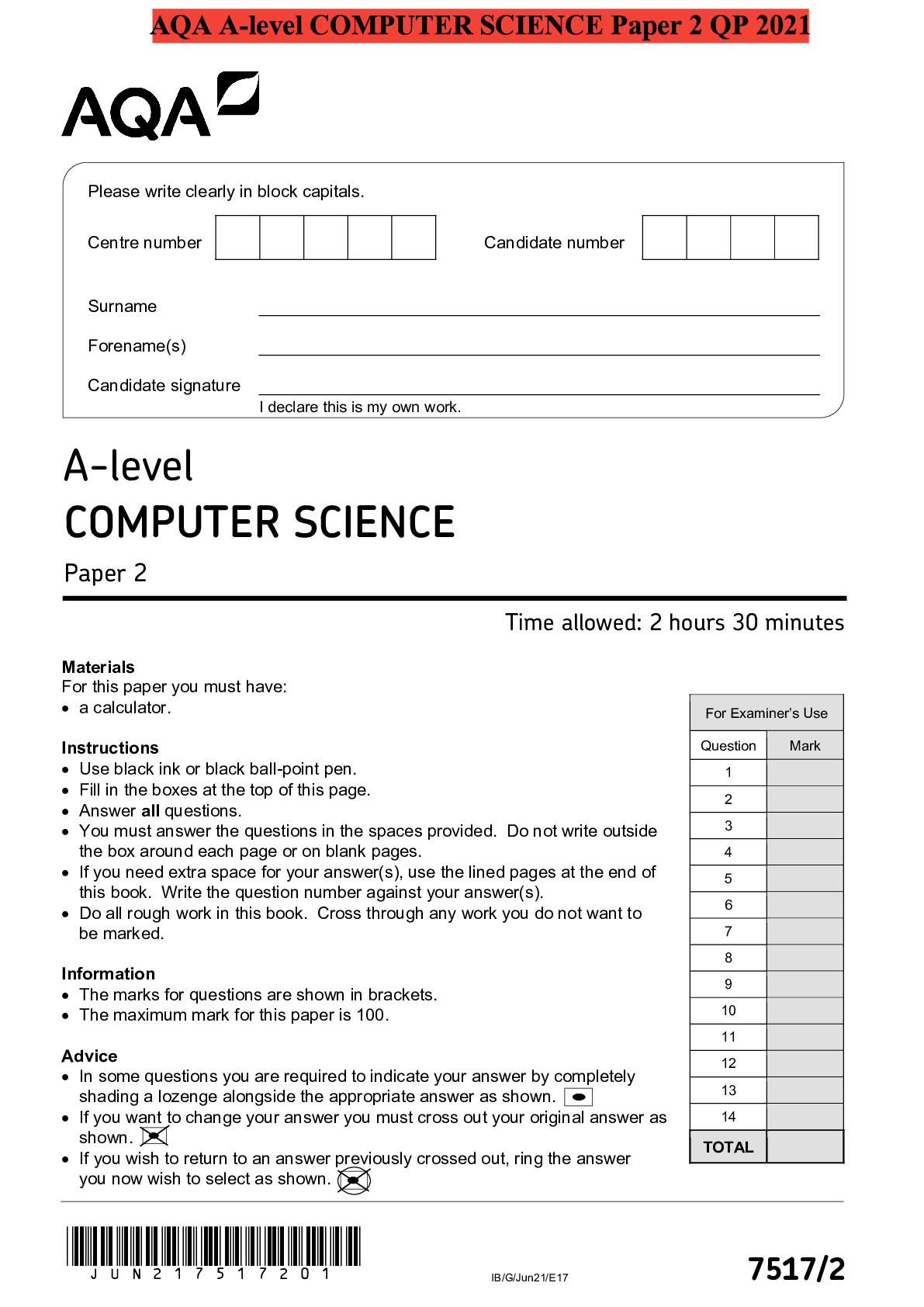
AQA A-level COMPUTER SCIENCE Paper 2 QP 2021
$ 8

AQA A-level ECONOMICS 7136/3 PAPER 3 ECONOMIC PRINCIPLES AND ISSUES Mark scheme June 2020 Version: 1.0 Final Mark Scheme
$ 11.5

PDF(ebook) The Impact of Artificial Intelligence on Governance, Economics and Finance, Volume 2,Sezer Bozkuş Kahyaoğlu,1e
$ 27

MCCC Module 10 - Introduction to MDMP
$ 10
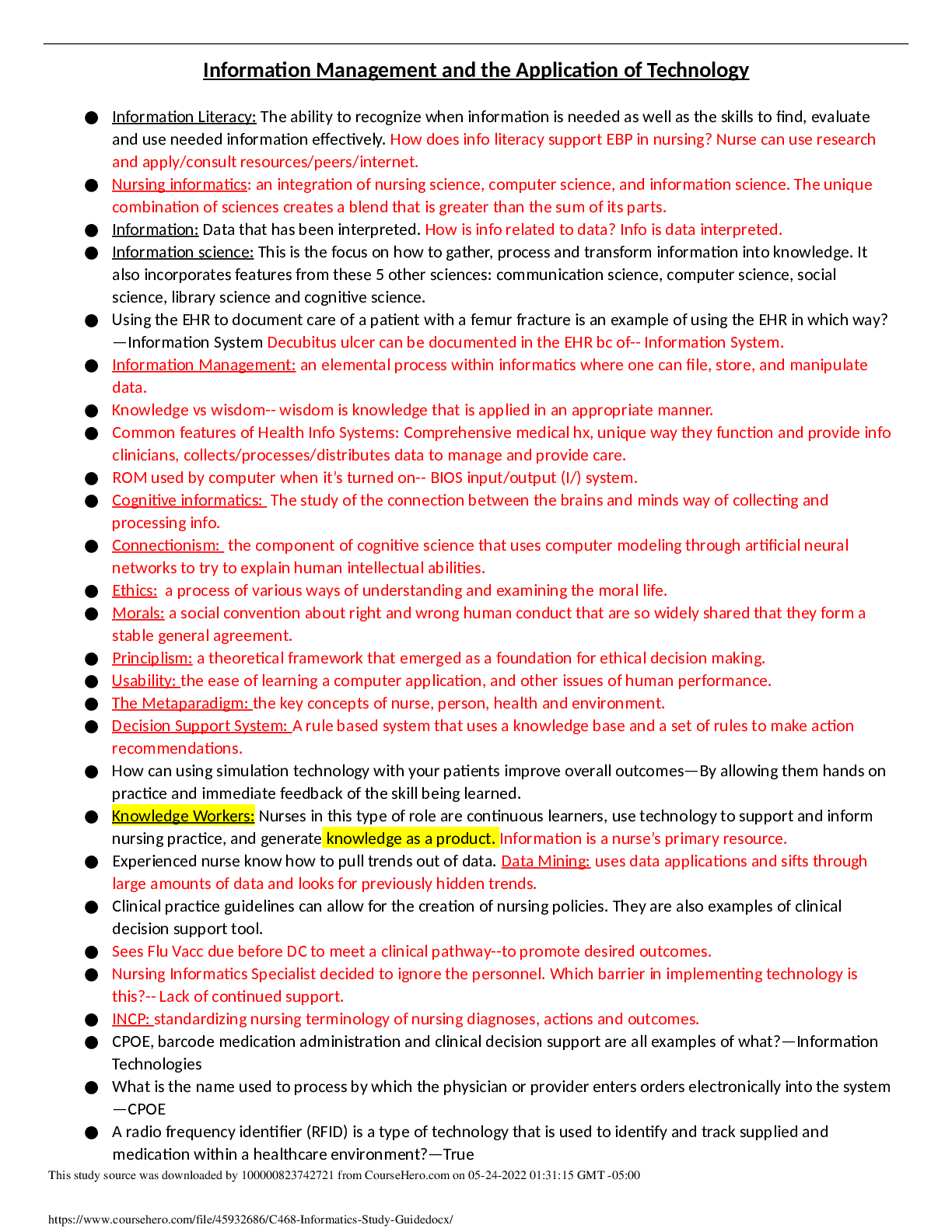
C468 Informatics Study Guide. Information Management and the Application of Technology
$ 7

NR-293 Week 2 Quiz 1 (Question with Answers)/ 100% CORRECT SOLUTIONS
$ 12.5
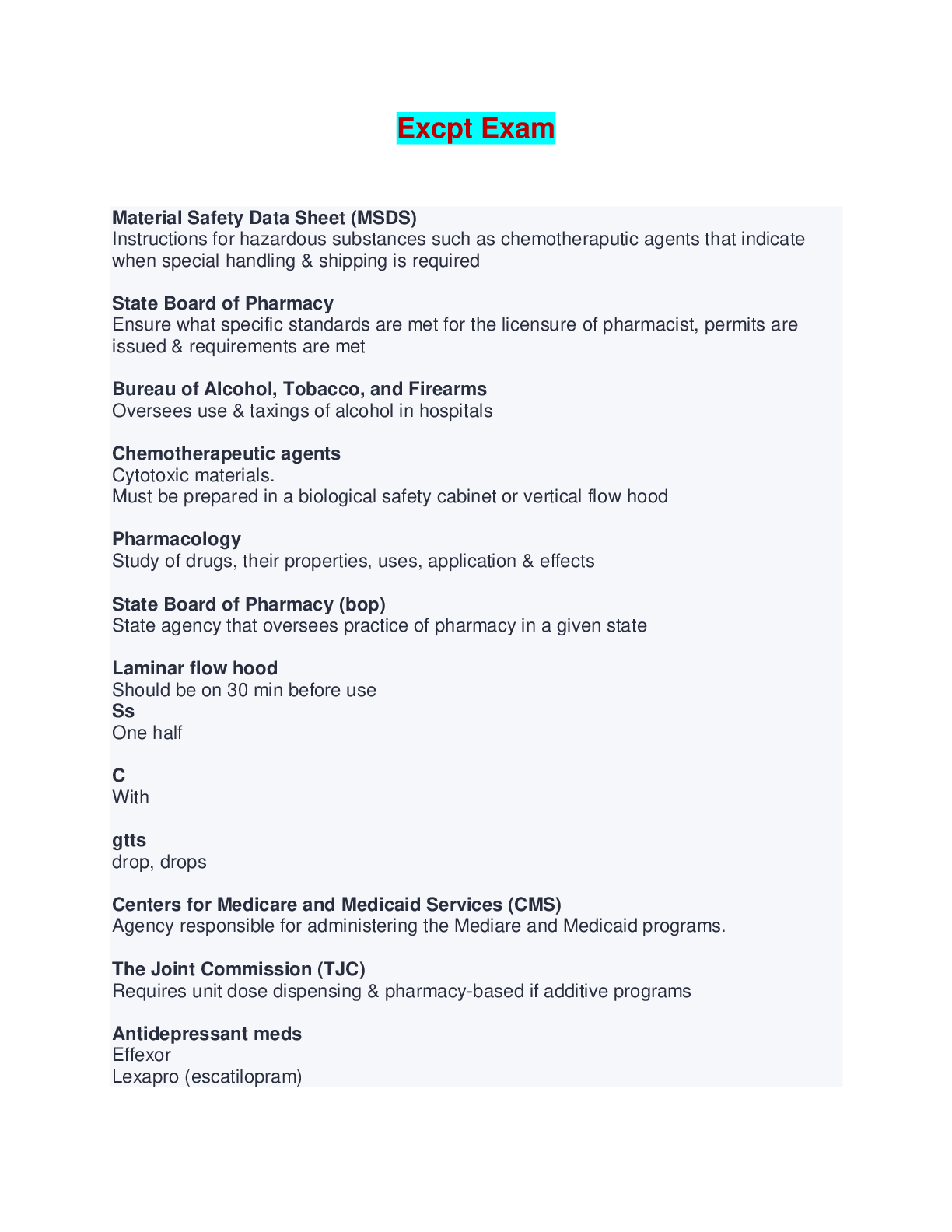
Excpt Exam - Questions and Answers
$ 13
.png)
OCR Interchange Autumn 2021 A Level Physics Mark Scheme/ H556/01 Modelling physics
$ 6

Pearson Edexcel GCE_Politics_9PL0/02 Mark Scheme_2020 | Paper 2: UK Government and Non-core Political Ideas
$ 6.5

OCR AS Level Mathematics B (MEI) H630/01 Pure Mathematics and Mechanics QP 2021
$ 10

Elevator Mechanic Exam 2018
$ 15

AQA AS CHEMISTRY 7404/1 Paper 1 Inorganic and Physical Chemistry Mark scheme June 2021 Version: 1.0 Final
$ 8

ATI Predictor Q&A Test. 180 Questions and Answers. All the information you need for full Exam Prep
$ 11

2022 IRC Exam Prediction with COMPLETE SOLUTION | 161 Questions with 100% Correct Answers
$ 12

BYU Exam Physical Science | 40 Questions with 100% Correct Answers | Updated & Verified
$ 4
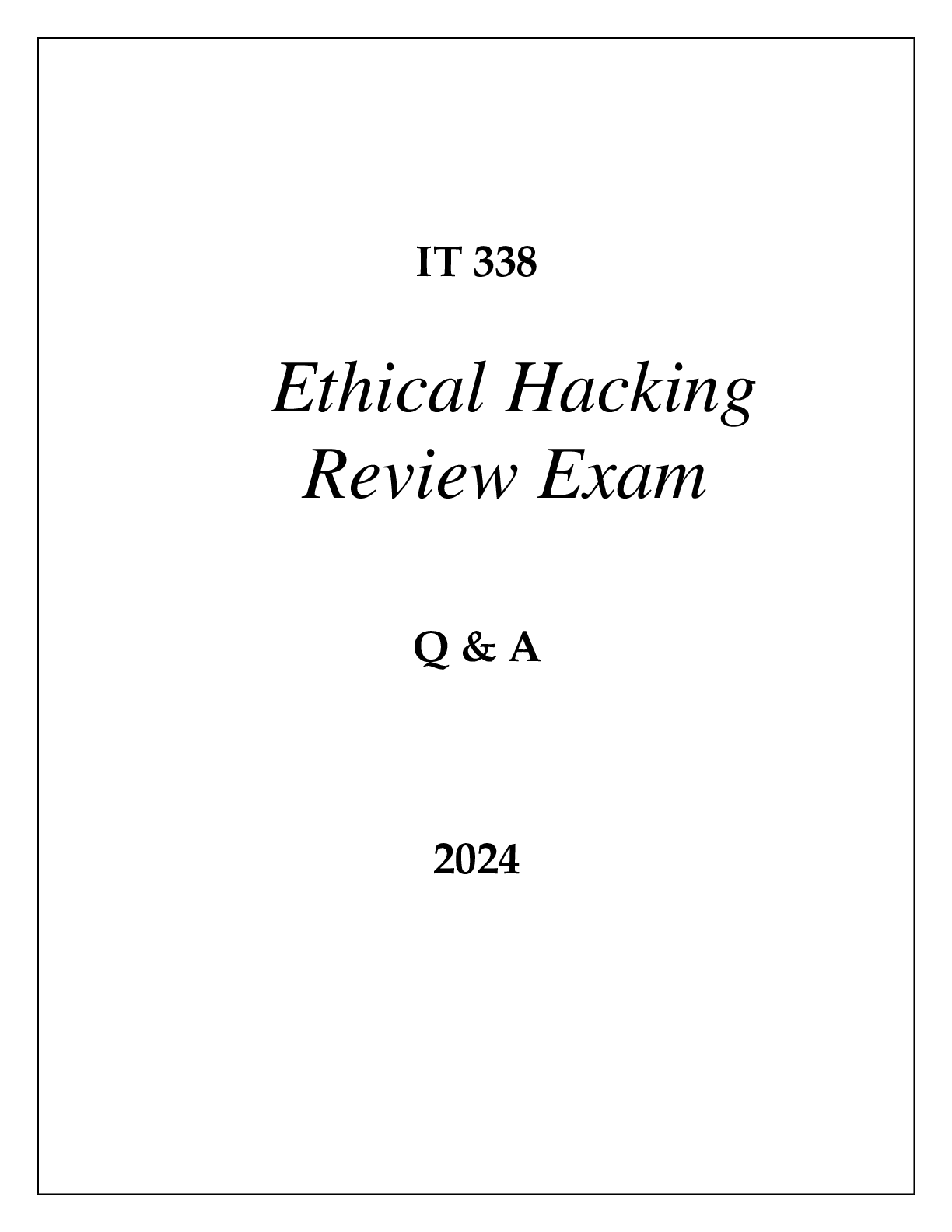
IT 338 ETHICAL HACKING REVIEW EXAM Q & A 2024
$ 14

EMT Midterm Exam Study Guide Latest Updated with A+ Solutions
$ 6

project-management-130717112230-phpapp02
$ 7.5

eBook PDF Mechanical and Electrical Equipment for Buildings 13th Edition By Walter Grondzik, Alison Kwok
$ 30
 Complete Answer key 2022.png)
GIZMOS -Free-Fall (SE) Complete Answer key 2022
$ 10

PHI 105 Topic 7 Quiz; Information Literacy Post-Test: Spring 2022
$ 12
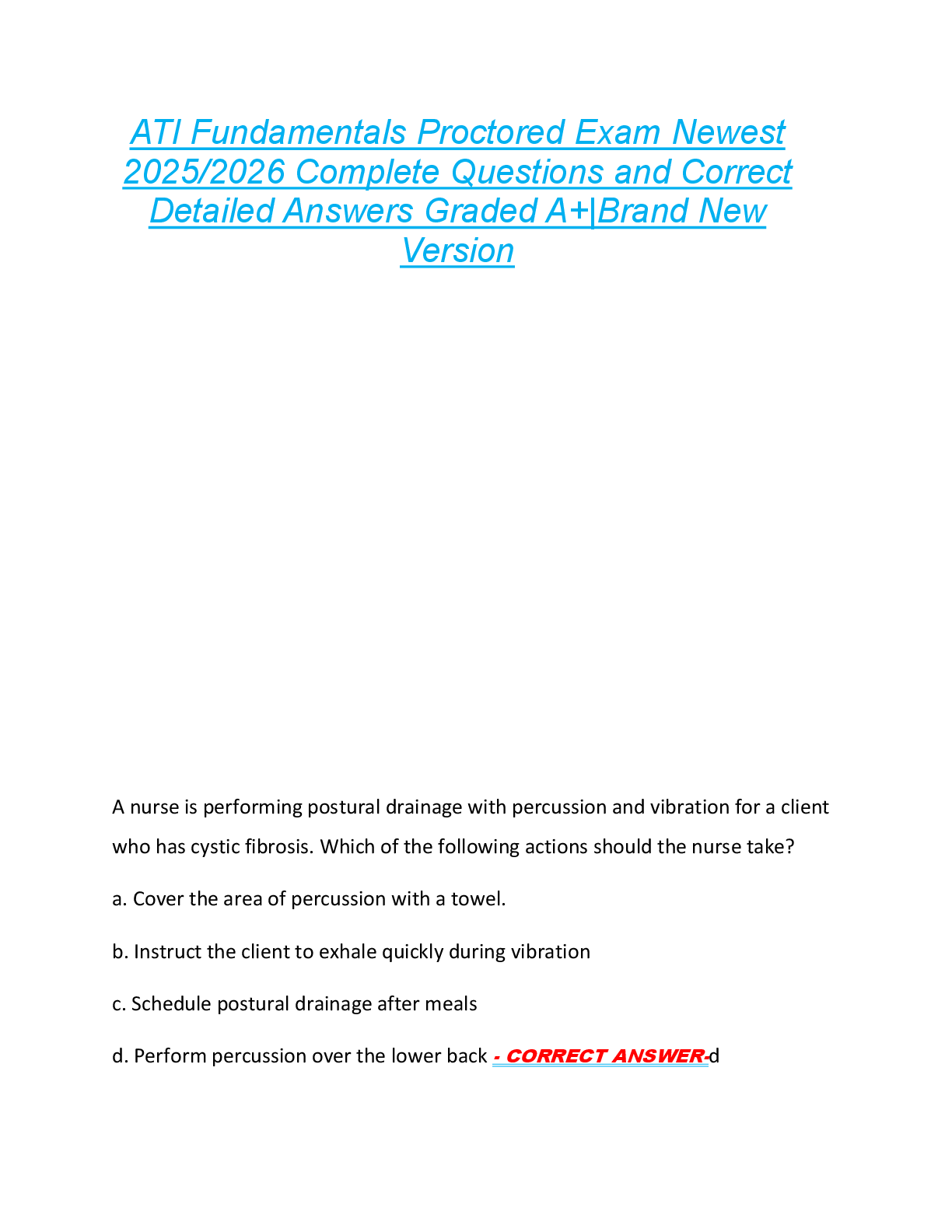
ATI Fundamentals Proctored Exam Newest 2025/2026 Complete Questions and Correct Detailed Answers Graded A+|Brand New Version
$ 15
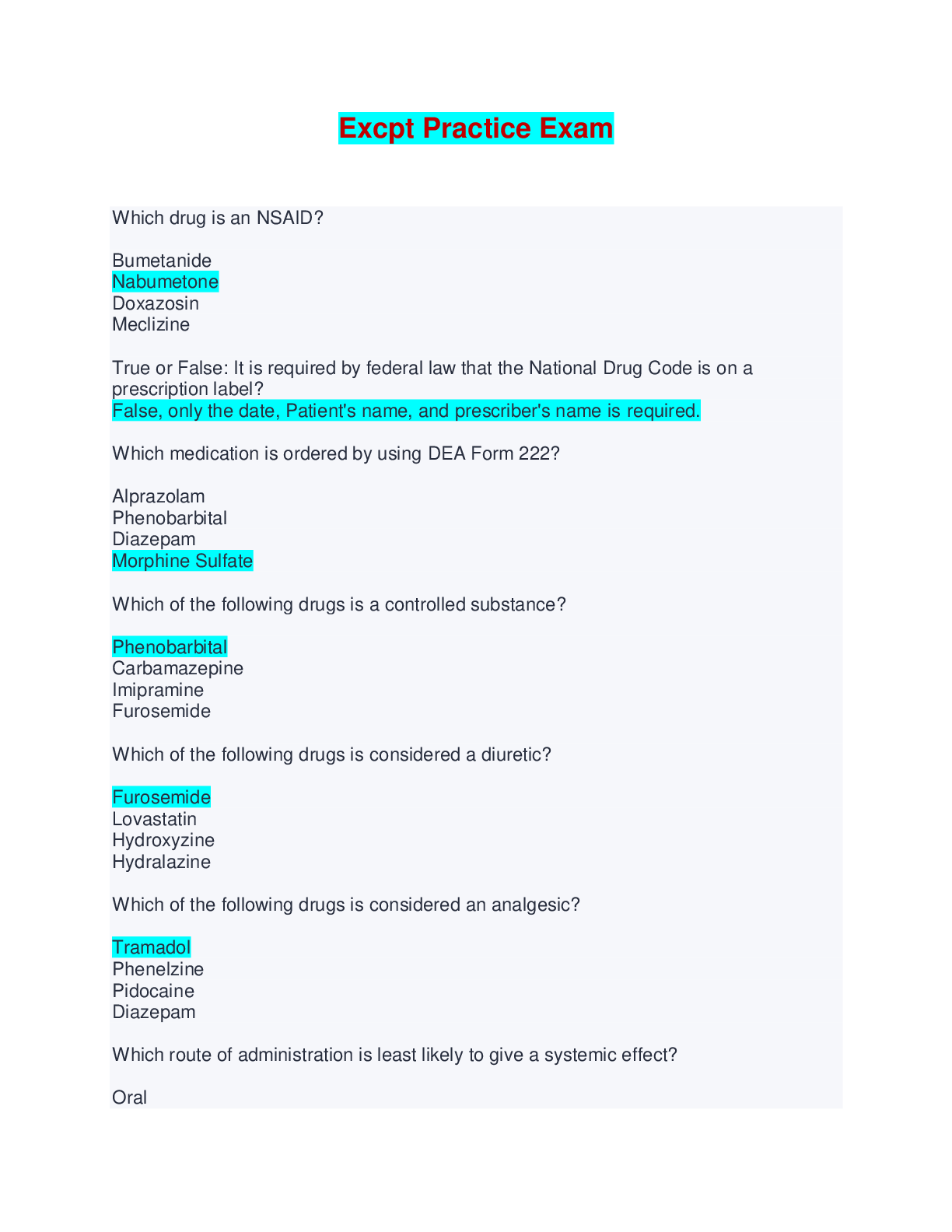
Excpt Practice Exam - Questions and Answers
$ 13

OCR GCE Chemistry A H432/01: Periodic table, elements and physical chemistry Advanced GCE Mark Scheme for November 2020
$ 5
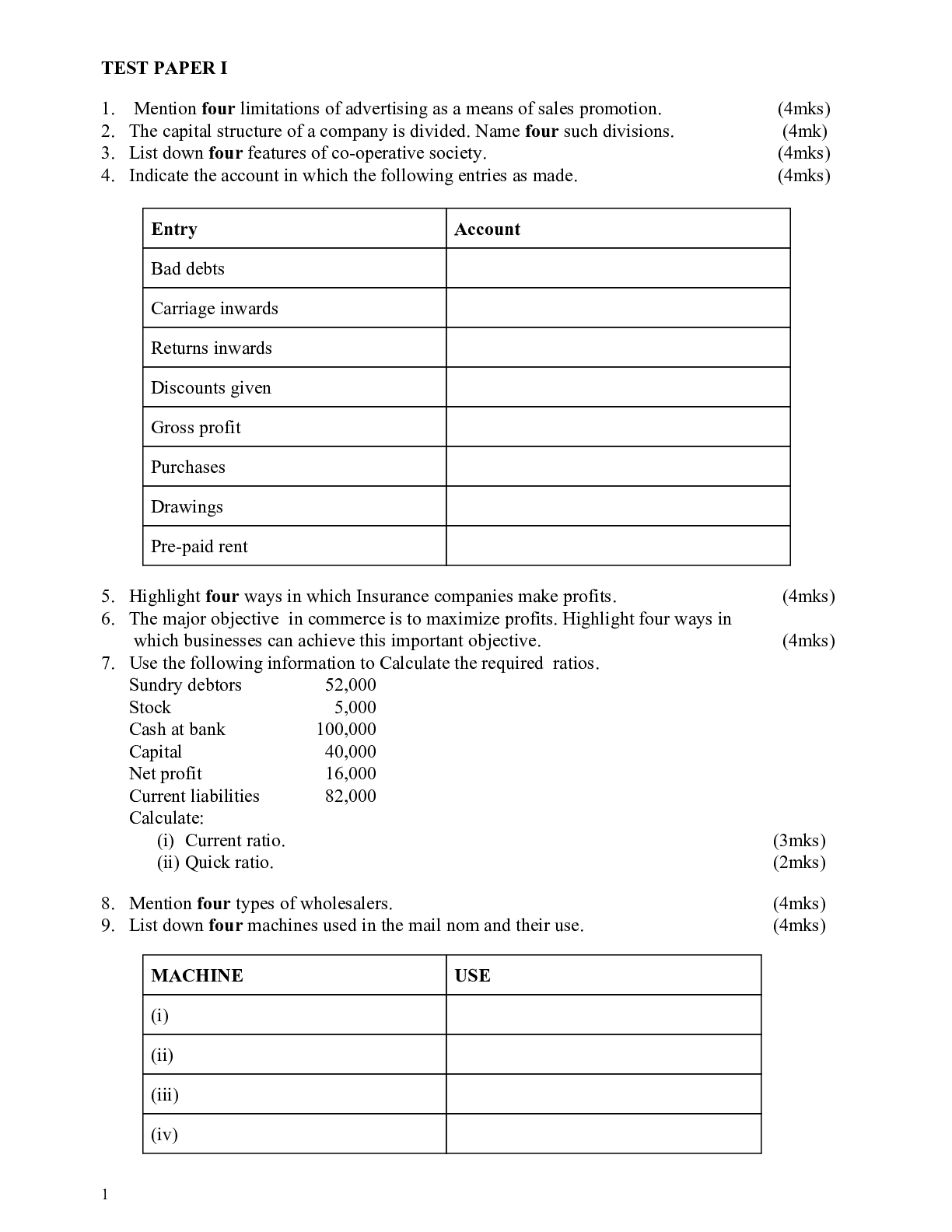
BUSINESS STUDIES
$ 15

Shigley’s Mechanical Engineering Design 9th Edition Solution Manual
$ 18

eBook Water Worlds in the Solar System 1st Edition by Antony Joseph
$ 29

Maternal Child Nursing W7 Exam With Questions And Answers

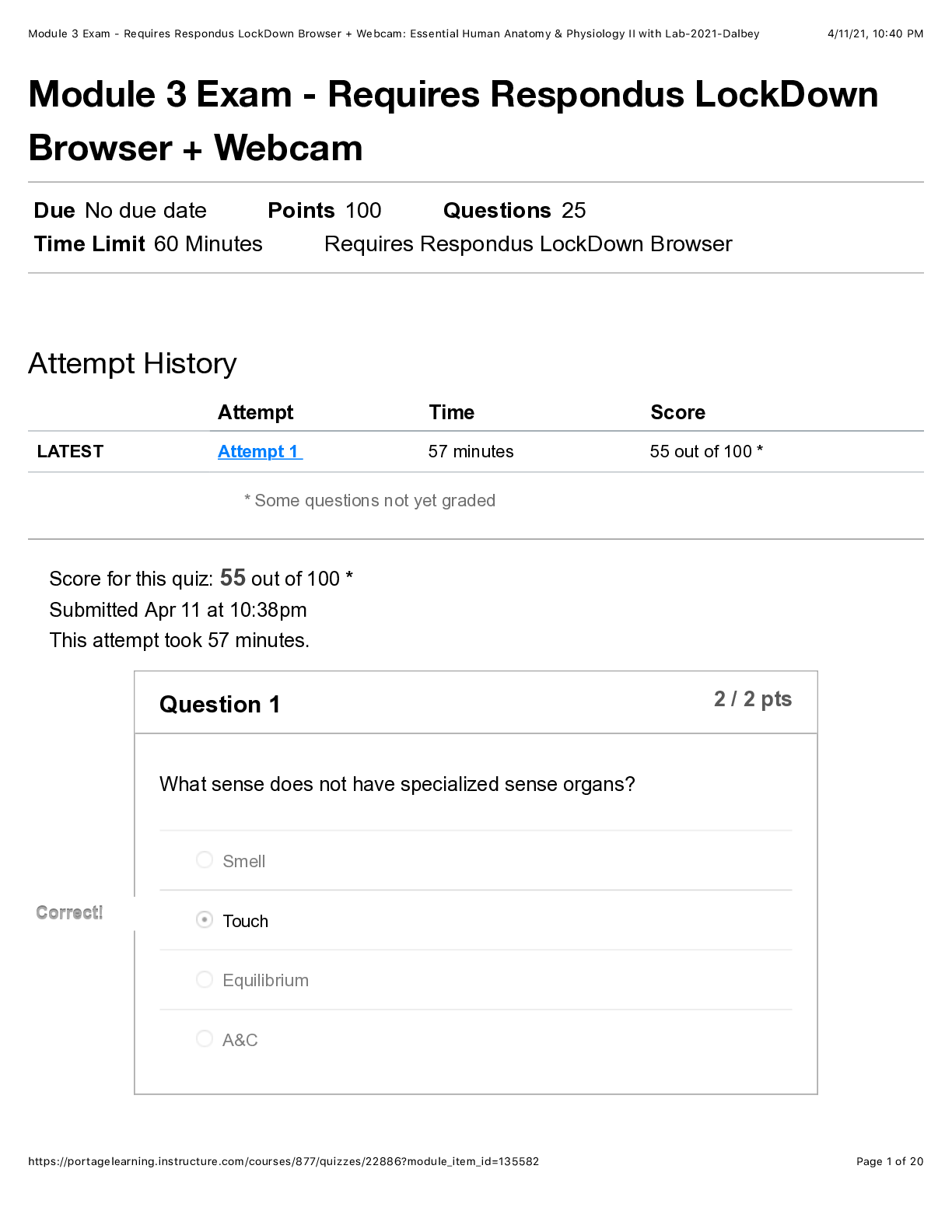


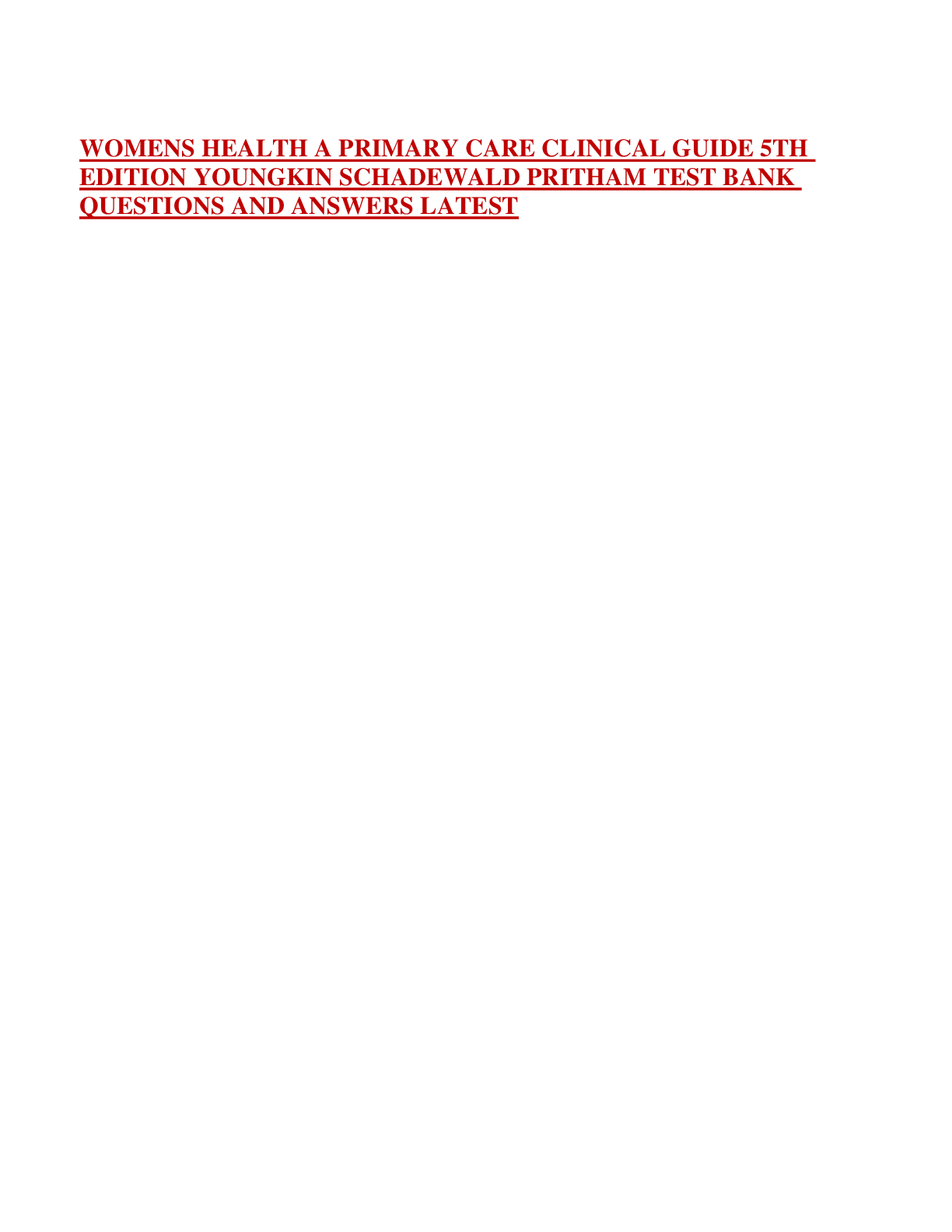
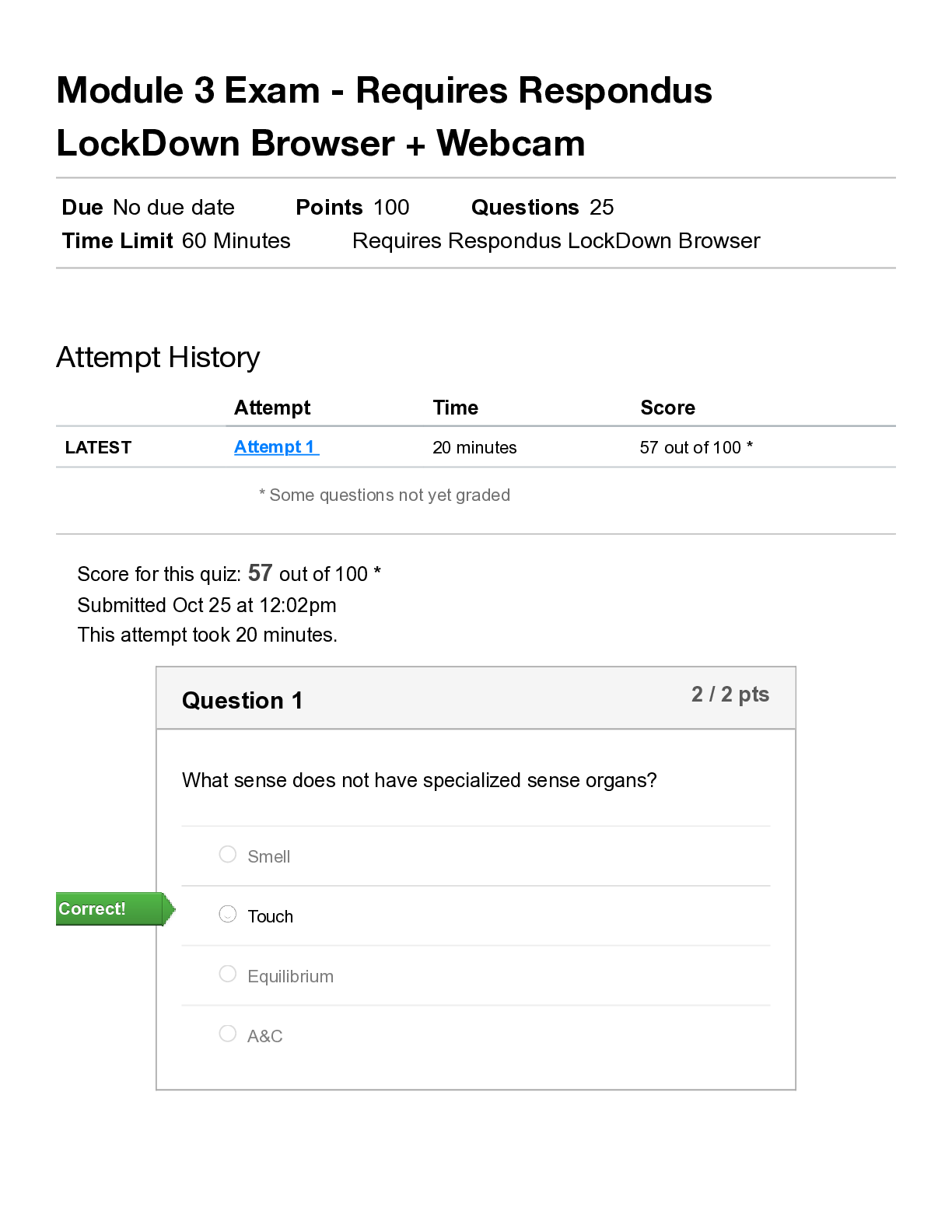
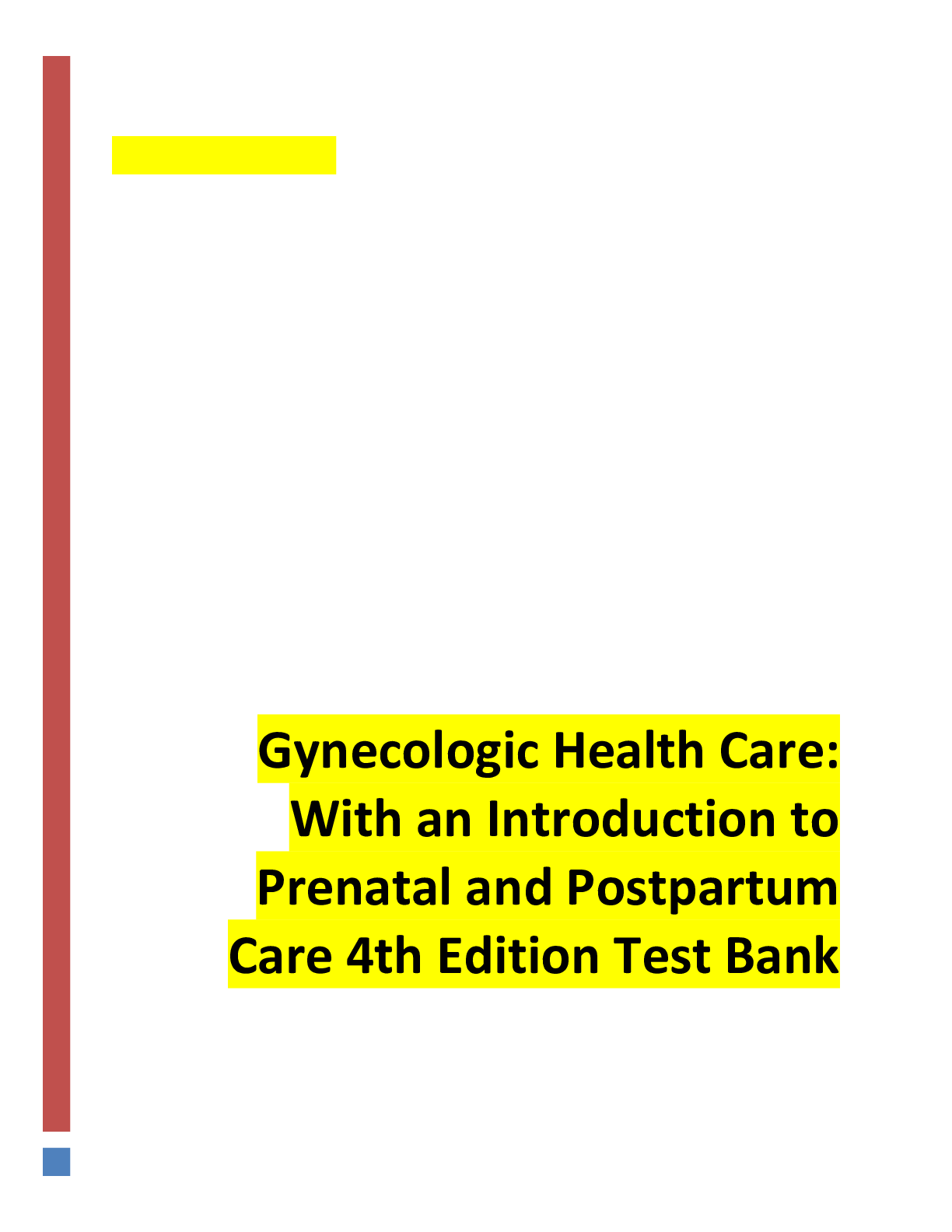
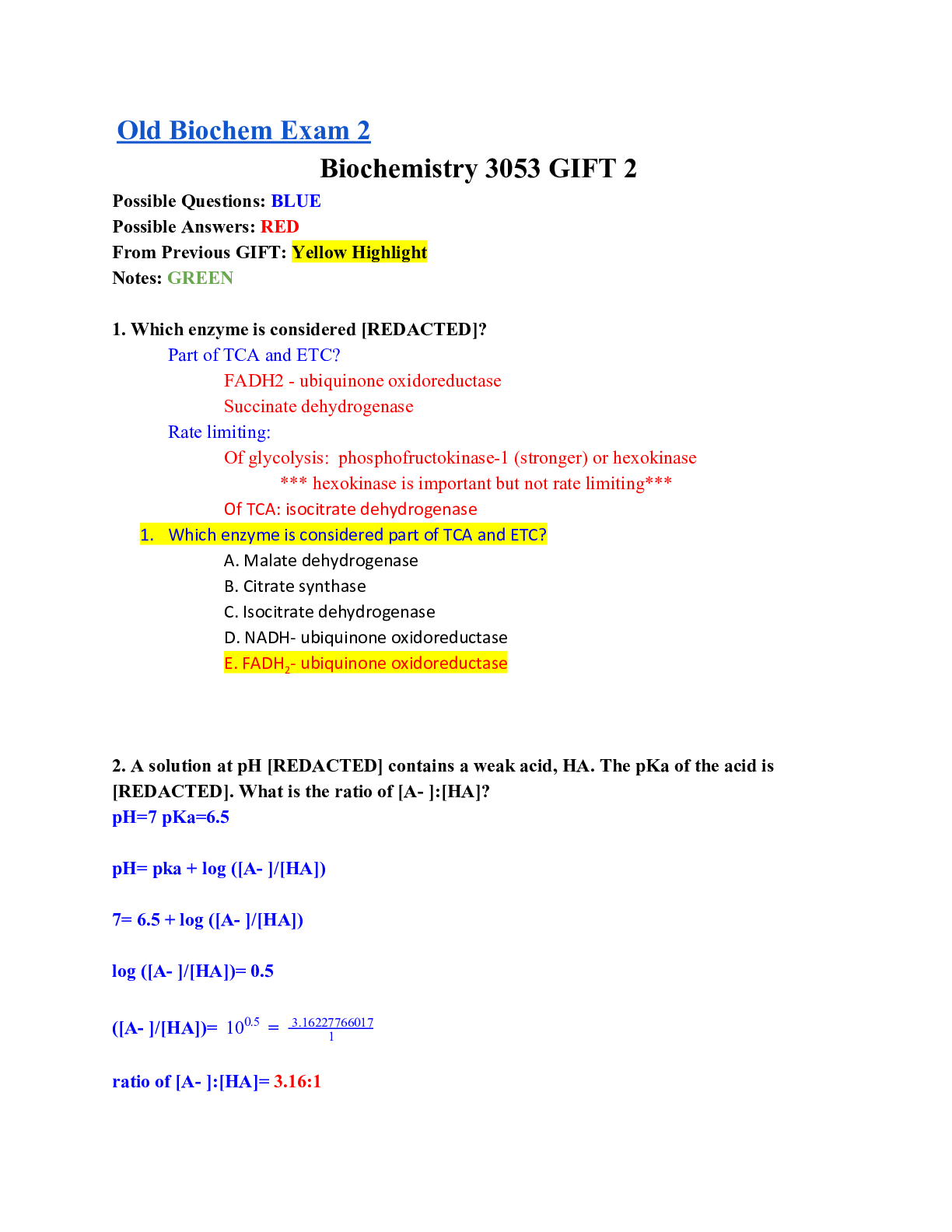

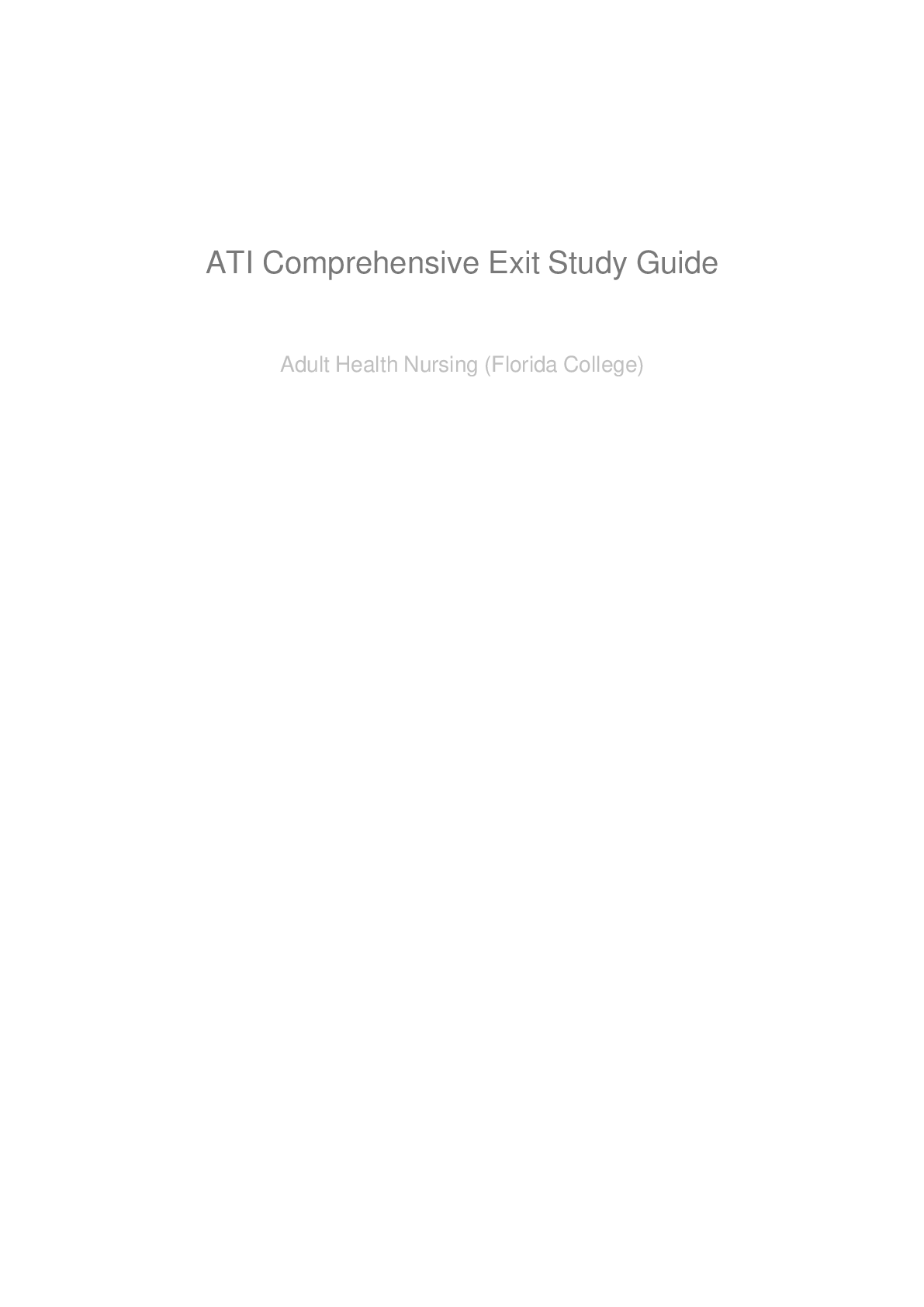
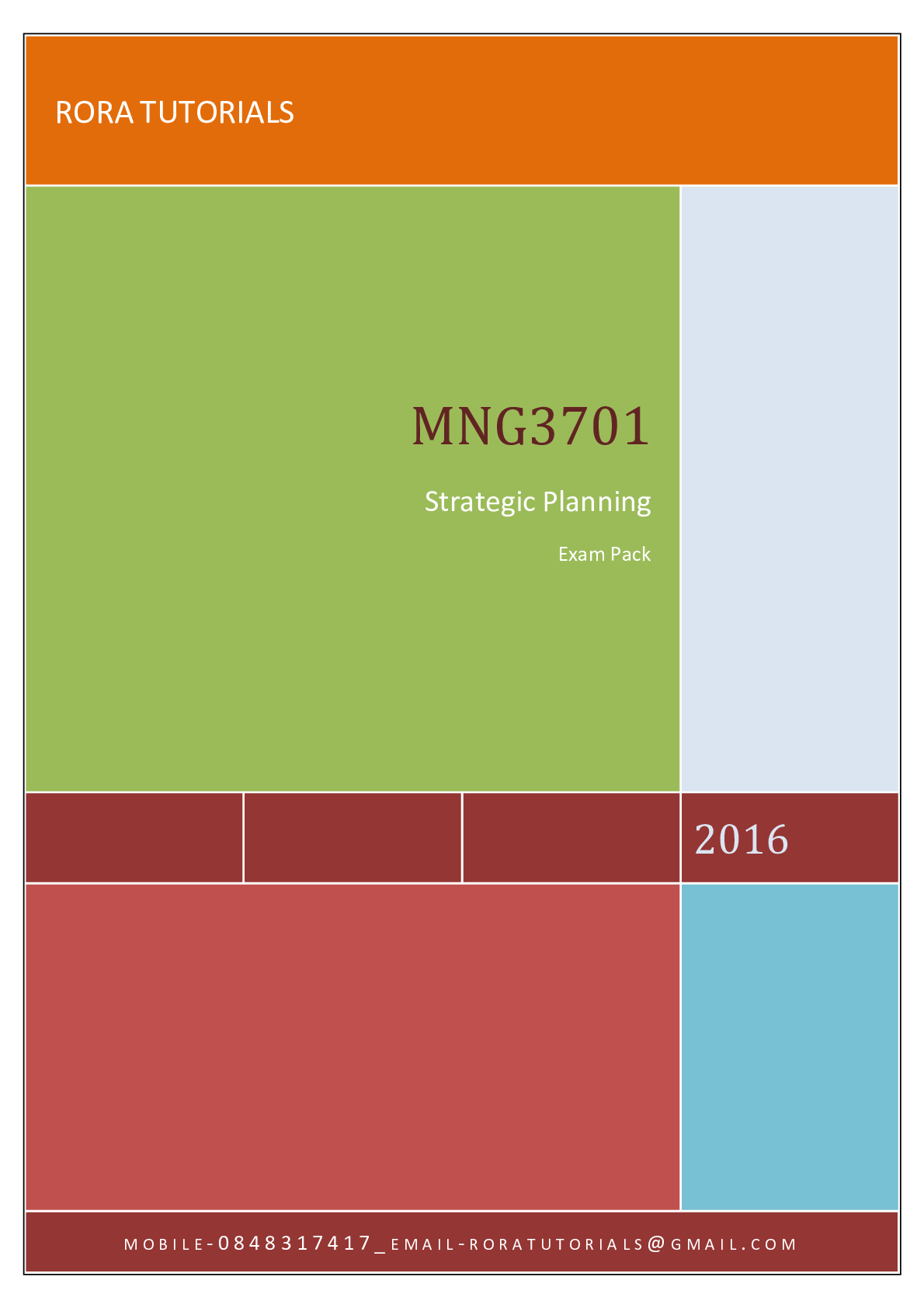
.png)



